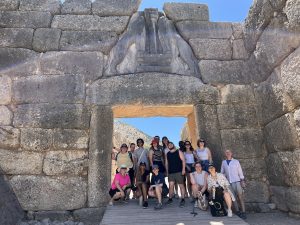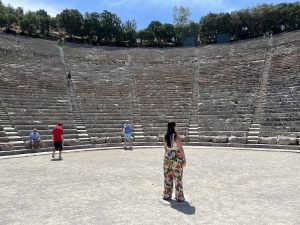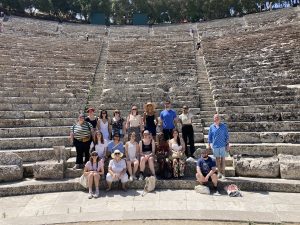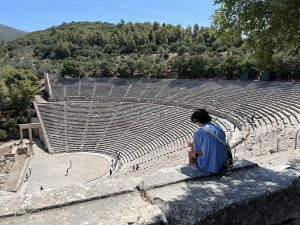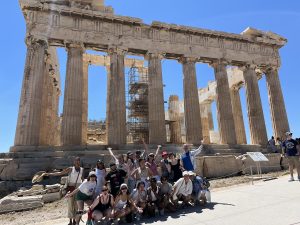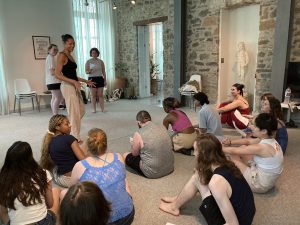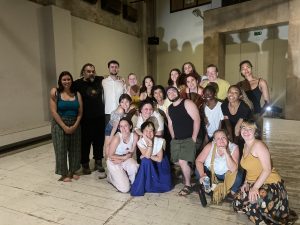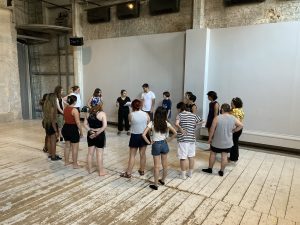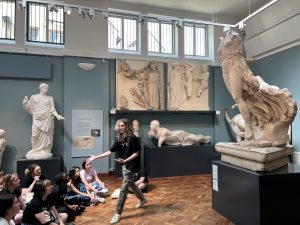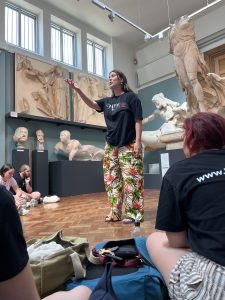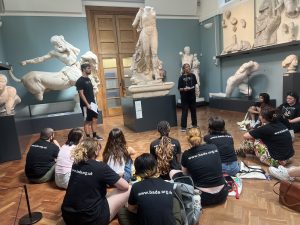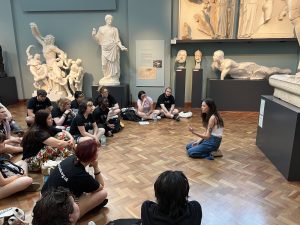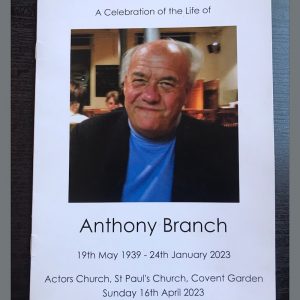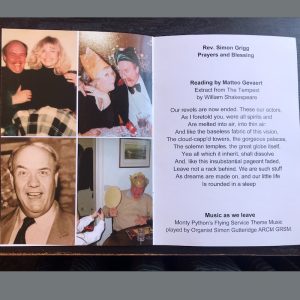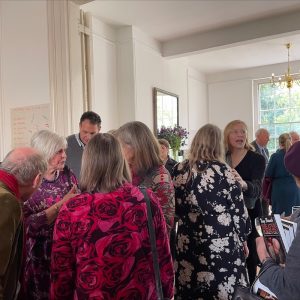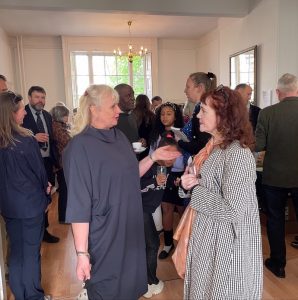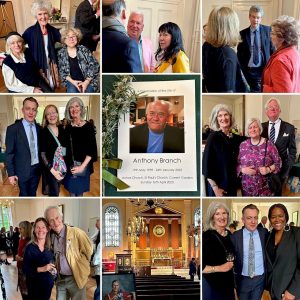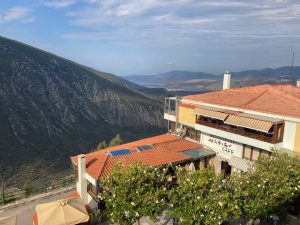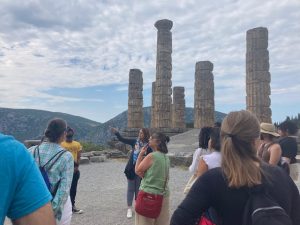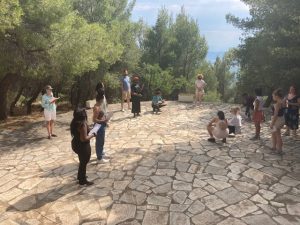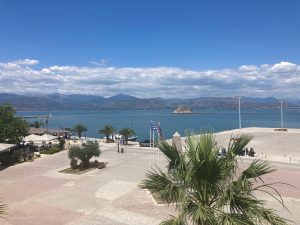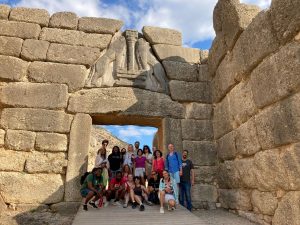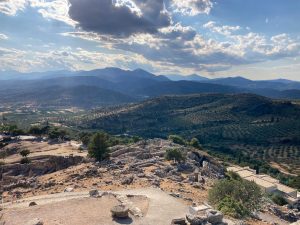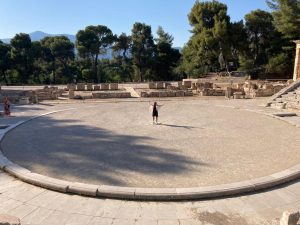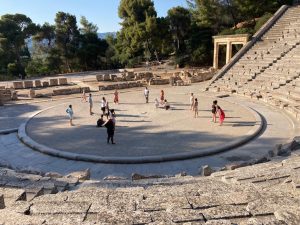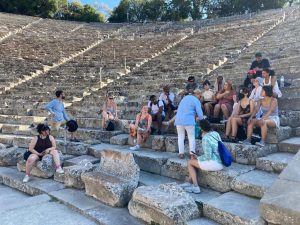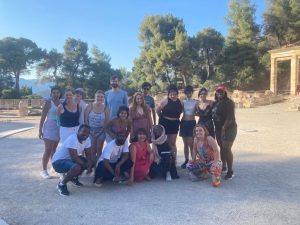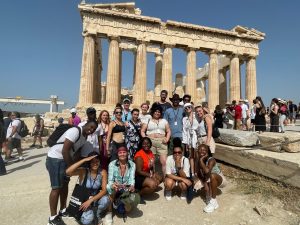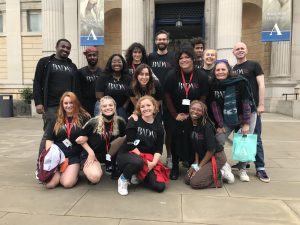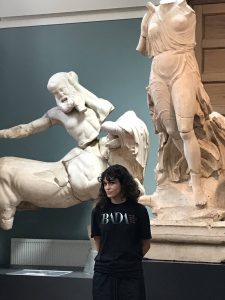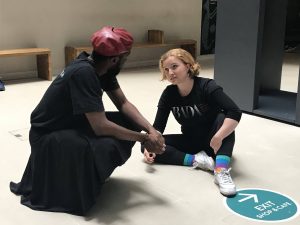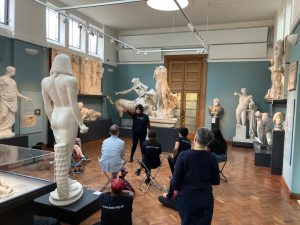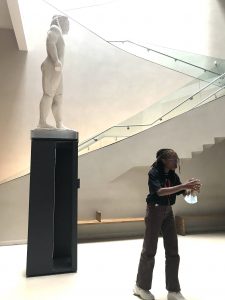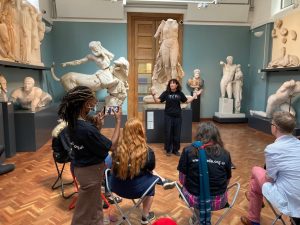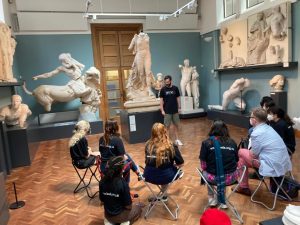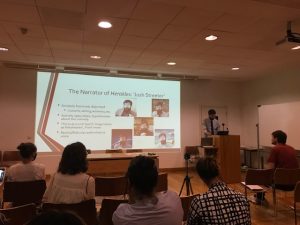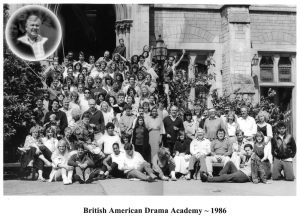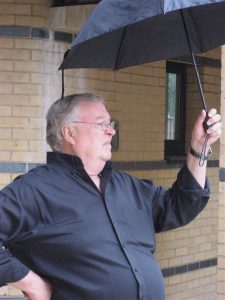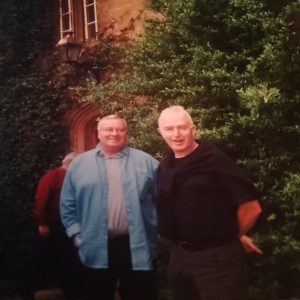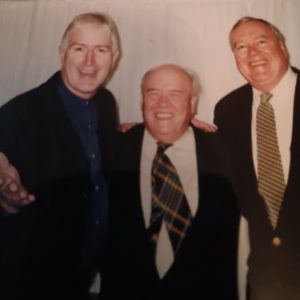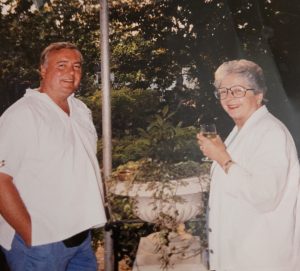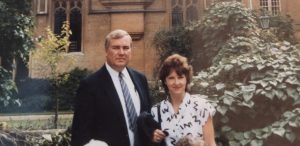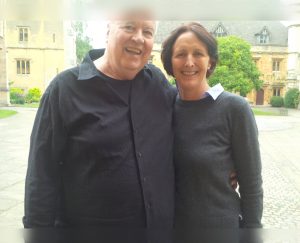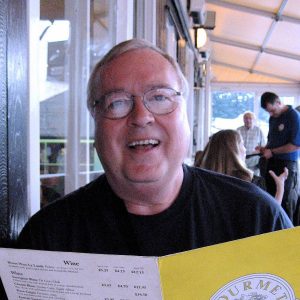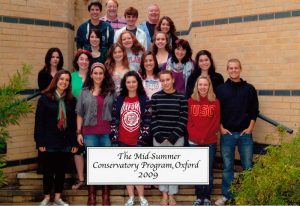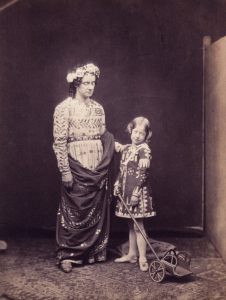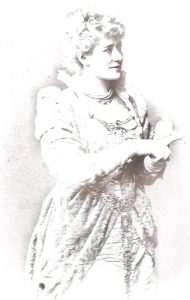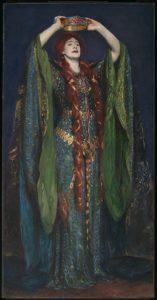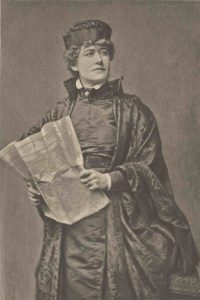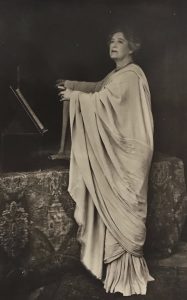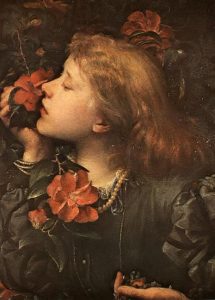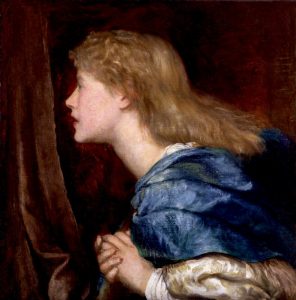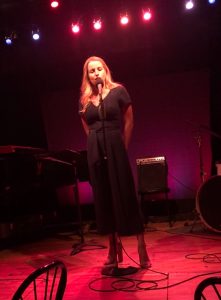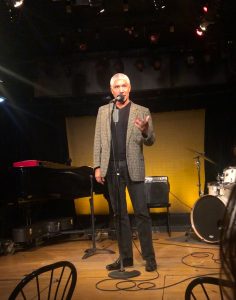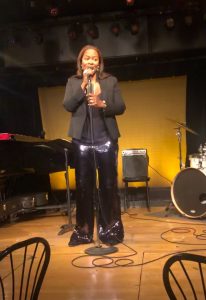LATEST NEWS
BADA Studio – Launching March 2025
For over 40 years, BADA has provided opportunities to engage with the finest professional theatre training in the UK, US and elsewhere in the world.
The BADA Studio is designed to offer such opportunities on an ongoing basis to our alumni family. The BADA Studio isn’t a physical location; it’s wherever members of the BADA community come together creatively or pedagogically to explore and refine their craft. Workshops, masterclasses and ongoing classes will take place in various locations in the USA as well as in London and are open to all BADA alumni. Leading the sessions will be members of BADA’s brilliant Faculty, friends from some of the top theatre training institutions in the US, UK and Europe, and members of the alumni community who are active in the theatre and performance industries.
Please join us in New York City this March, with BADA Studio events in other locations to follow later in the year. The launch will consist of four individual Masterclasses, each offering a unique experience.
The classes will be released on Sunday, February 23rd at 12pm EST.
All classes will take place at:
|
Open Jar Studios |
Nearest Subway Access: N, R, W Trains – 49th Street Station A, C, E Trains – 50th Street Station 1 Train – 50th Street Station |
-
Shakespeare and the Actor’s Toolbox led by Peter Francis James
Wednesday, March 19th. 3pm-6pm
Class Limit: 15 participants
Fee: $50With the text as the fundamental teacher, PFJ will guide you in employing the specifics of language, as the means to discovering action, subtext, circumstance, and relationships, allowing connection with the writing, at the deepest, most personal level; this, while referencing history, its continuity with contemporary life, and so, finding our common humanity, as revealed in these plays.
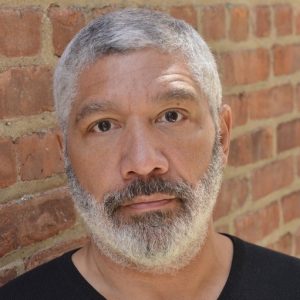
Peter Francis James (Faculty – MIO) taught Shakespeare at the Yale School of Drama from 2000 – 2020. Training: RADA. Broadway: HILLARY AND CLINTON, PRESENT LAUGHTER, THE MERCHANT OF VENICE, ON GOLDEN POND, DROWNING CROW, JUDGMENT AT NUREMBERG. The Public: STUFF HAPPENS (OBIE & Lucille Lortel Awards), MUCH ADO, VENUS, HORATIO IN KEVIN KLINE’S HAMLET, LONG DAY’S JOURNEY… CSC: THE MAIDS (OBIE Award). Signature Theater: THE LADY FROM DUBUQUE, (Lortel Nomination). U.K: THE LADY FROM DUBUQUE (w/Maggie Smith), CYMBELINE (RSC /TFANA). Film/TV: THE HUMBLING, SONG ONE, THE LOSERS, THE REBOUND, THE MESSENGER / BULL, GODFATHER OF HARLEM, THE CODE, BOARDWALK EMPIRE, THE MYSTERIES OF LAURA, OZ, ROYAL PAINS, GOSSIP GIRL, KINGS, THE ROSA PARKS STORY, SIMPLE JUSTICE, THE RUBY BRIDGES STORY, all three LAW & ORDER series. Narration: over 60 books. -
The Business of Acting with Melissa Maxwell
Thursday, March 20th. Time 3:30pm-6pm
Class Limit: 30 participants
Fee: $50One of the most difficult but important parts of being a professional actor is navigating the business side of things. Melissa Maxwell will teach the group how to work smarter, not harder as professional artists. She will work with the students on type versus brand, how best to network, self-tapes, and how to set yourself up for a long and successful career.
 Melissa Maxwell is a director, actor, writer, educator, motivational speaker, the Co-Associate Artistic Director of The Great River Shakespeare Festival and the Director of Professional Development at the Stella Adler Studio of Acting.ACTOR: SAG-AFTRA and AEA Member. A graduate of Boston University with a BFA in theatre performance. Stage credits include the Mint Theater, Guthrie Theater, Great River Shakespeare Festival (where she is a proud company member), George Street Playhouse, The Public Theatre of Maine, The Pearl Theatre Company, Capital Rep, Alabama Shakespeare Festival, Delaware Theatre Company, Helen Hayes Performing Arts, Cincinnati Playhouse, Crossroads Theatre, Kennedy Center, Lincoln Center Institute, A partial list of film and TV credits include: FBI: Most Wanted, Manifest, Madam Secretary, Mrs. Fletcher, HOSTAGES, The Thomas Crown Affair, Law & Order, The Sopranos, Third Watch, Oz, Special Victims Unit, Never Again, Petty Crimes, 13 Conversations About One Thing, Jonny Zero, As The World Turns, All My Children. and countless TV commercials. As a voice over artist, Melissa started at WGBH in Boston where she recorded several radio dramas (most notably playing Eliza in Uncle Tom’s Cabin to James Earl Jones’ Tom). She has recorded numerous audio books for the American Federation for the Blind and several voice overs for commercials and industrials.DIRECTOR: SDC Member. Upcoming: STEEL MAGNOLIAS (Utah Shakespeare Festival). Select previous credits include: CLYDE’S (Playmakers Repertory Theatre); lMBROGLIO (Great River Shakespeare Festival, world premiere); CLYDE’S (George Street Playhouse); TROUBLE IN MIND (Utah Shakespeare Festival); TUNNEL VISION (Pittsburgh’s Off the WALL Theatre, world premiere); SAFE HOUSE (The Repertory Theatre of St Louis, BroadwayWorld.com’s BEST OF 2015 by Chris Gibson list and ranked #3 on Ladue News’ The Best Theatre of St Louis 2015 list); SLASHES OF LIGHT (The Kitchen Theatre in association with Civic Ensemble, world premiere; NYCWAM Collaboration Award Honored Finalists); American Slavery Project’s UNHEARD VOICES (NY Historical Society, Shabazz Center, Ensemble Studio Theatre, CAP 21 and other venues; developed to give voice to the nameless souls buried at the African Burial Ground in NYC); CRUMBS FROM THE TABLE OF JOY (Juilliard School of Drama); OLIVER TWIST (The New School of Drama); MACHINAL (Queens College); THE AFRICAN COMPANY PRESENTS Richard III (Nevada Conservatory Theatre); INTIMATE APPAREL (Texas State University); LITTLE WOMEN, the musical (University of Texas at Austin); IN THE HEIGHTS (NYU Tisch School of Drama), John Biguenet’s SHOTGUN (Webster University); TROUBLE IN MIND (Ohio State University); INTIMATE APPAREL (University of Texas); SHOW WAY (Vital Theatre, a children’s musical based on Jacqueline Woodson’s award-winning children’s book of the same name, received an Off Broadway Alliance ‘Best Family Show’ nomination); NATHAN THE WISE (Pearl Theatre Company), TABOOS (American premiere at Soho Playhouse, written by Professor Carl Djerassi, the scientist who invented the contraceptive pill).WRITER: Dramatist Guild Member. Melissa is an award-winning playwright. Her latest play, IMBROGLIO, received its world premiere at the Great River Shakespeare Festival in 2023. SALT IN A WOUND, a Julie Harris Playwright Competition finalist, was produced by Chicago’s eta Creative Arts Foundation, for which it received 5 Black Theater Alliance Award nominations, including ‘Best Play’ and ‘Best Writer’, and a ‘Production of the Year’ nomination from The African American Arts Alliance of Chicago. UNREQUITED LOVE was produced at New Perspectives Theatre Company in NYC, for which it received an Audelco Award nomination. It also won her the New Professional Theatre’s Our Words Award for excellence in playwriting. Unrequited Love is in print and available through Barnes and Noble, Amazon.com, the Drama Book Shop and other booksellers. It is also available for download through iTunes, Nook and Kindle. Both plays have had staged readings in various festivals including CAP 21’s BlackJack Festival of New Works, The Alabama Shakespeare Festival’s Southern Writer’s Project, and New Perspectives Theatre Company’s Voices From The Edge. Her one-act, FETUS ENVY, a political satire that examines where our society is headed when women’s healthcare is commandeered by ambitious politicians and faceless bureaucrats, was originally featured in the NYC Fringe Festival as part of Urban Rock Project’s production, Patriot Acts: The Constitution Project. It was later produced by manhattantheatre source in their 2007 EstroGenius Festival, and is now published in their anthology, Book of EstroGenius 2007. In 2012, Melissa adapted it into a short film, earning her an AAPEX Filmmaker Award. The film can be viewed here: www.fetusenvy.com. (trt: 13mins)MOTIVATIONAL SPEAKER: Melissa is often asked to speak at schools and universities. Most notably she has been invited to present two TEDx Talks: TEDxMosesBrownSchool: Taking Ownership and TEDxBarnardCollegeWomen: On Courage.
Melissa Maxwell is a director, actor, writer, educator, motivational speaker, the Co-Associate Artistic Director of The Great River Shakespeare Festival and the Director of Professional Development at the Stella Adler Studio of Acting.ACTOR: SAG-AFTRA and AEA Member. A graduate of Boston University with a BFA in theatre performance. Stage credits include the Mint Theater, Guthrie Theater, Great River Shakespeare Festival (where she is a proud company member), George Street Playhouse, The Public Theatre of Maine, The Pearl Theatre Company, Capital Rep, Alabama Shakespeare Festival, Delaware Theatre Company, Helen Hayes Performing Arts, Cincinnati Playhouse, Crossroads Theatre, Kennedy Center, Lincoln Center Institute, A partial list of film and TV credits include: FBI: Most Wanted, Manifest, Madam Secretary, Mrs. Fletcher, HOSTAGES, The Thomas Crown Affair, Law & Order, The Sopranos, Third Watch, Oz, Special Victims Unit, Never Again, Petty Crimes, 13 Conversations About One Thing, Jonny Zero, As The World Turns, All My Children. and countless TV commercials. As a voice over artist, Melissa started at WGBH in Boston where she recorded several radio dramas (most notably playing Eliza in Uncle Tom’s Cabin to James Earl Jones’ Tom). She has recorded numerous audio books for the American Federation for the Blind and several voice overs for commercials and industrials.DIRECTOR: SDC Member. Upcoming: STEEL MAGNOLIAS (Utah Shakespeare Festival). Select previous credits include: CLYDE’S (Playmakers Repertory Theatre); lMBROGLIO (Great River Shakespeare Festival, world premiere); CLYDE’S (George Street Playhouse); TROUBLE IN MIND (Utah Shakespeare Festival); TUNNEL VISION (Pittsburgh’s Off the WALL Theatre, world premiere); SAFE HOUSE (The Repertory Theatre of St Louis, BroadwayWorld.com’s BEST OF 2015 by Chris Gibson list and ranked #3 on Ladue News’ The Best Theatre of St Louis 2015 list); SLASHES OF LIGHT (The Kitchen Theatre in association with Civic Ensemble, world premiere; NYCWAM Collaboration Award Honored Finalists); American Slavery Project’s UNHEARD VOICES (NY Historical Society, Shabazz Center, Ensemble Studio Theatre, CAP 21 and other venues; developed to give voice to the nameless souls buried at the African Burial Ground in NYC); CRUMBS FROM THE TABLE OF JOY (Juilliard School of Drama); OLIVER TWIST (The New School of Drama); MACHINAL (Queens College); THE AFRICAN COMPANY PRESENTS Richard III (Nevada Conservatory Theatre); INTIMATE APPAREL (Texas State University); LITTLE WOMEN, the musical (University of Texas at Austin); IN THE HEIGHTS (NYU Tisch School of Drama), John Biguenet’s SHOTGUN (Webster University); TROUBLE IN MIND (Ohio State University); INTIMATE APPAREL (University of Texas); SHOW WAY (Vital Theatre, a children’s musical based on Jacqueline Woodson’s award-winning children’s book of the same name, received an Off Broadway Alliance ‘Best Family Show’ nomination); NATHAN THE WISE (Pearl Theatre Company), TABOOS (American premiere at Soho Playhouse, written by Professor Carl Djerassi, the scientist who invented the contraceptive pill).WRITER: Dramatist Guild Member. Melissa is an award-winning playwright. Her latest play, IMBROGLIO, received its world premiere at the Great River Shakespeare Festival in 2023. SALT IN A WOUND, a Julie Harris Playwright Competition finalist, was produced by Chicago’s eta Creative Arts Foundation, for which it received 5 Black Theater Alliance Award nominations, including ‘Best Play’ and ‘Best Writer’, and a ‘Production of the Year’ nomination from The African American Arts Alliance of Chicago. UNREQUITED LOVE was produced at New Perspectives Theatre Company in NYC, for which it received an Audelco Award nomination. It also won her the New Professional Theatre’s Our Words Award for excellence in playwriting. Unrequited Love is in print and available through Barnes and Noble, Amazon.com, the Drama Book Shop and other booksellers. It is also available for download through iTunes, Nook and Kindle. Both plays have had staged readings in various festivals including CAP 21’s BlackJack Festival of New Works, The Alabama Shakespeare Festival’s Southern Writer’s Project, and New Perspectives Theatre Company’s Voices From The Edge. Her one-act, FETUS ENVY, a political satire that examines where our society is headed when women’s healthcare is commandeered by ambitious politicians and faceless bureaucrats, was originally featured in the NYC Fringe Festival as part of Urban Rock Project’s production, Patriot Acts: The Constitution Project. It was later produced by manhattantheatre source in their 2007 EstroGenius Festival, and is now published in their anthology, Book of EstroGenius 2007. In 2012, Melissa adapted it into a short film, earning her an AAPEX Filmmaker Award. The film can be viewed here: www.fetusenvy.com. (trt: 13mins)MOTIVATIONAL SPEAKER: Melissa is often asked to speak at schools and universities. Most notably she has been invited to present two TEDx Talks: TEDxMosesBrownSchool: Taking Ownership and TEDxBarnardCollegeWomen: On Courage. -
Re-Speak the Speech: Tackle Your Old BADA Speeches with Andrew Wade
Friday, March 21st. 10am-1pm
Class Limit: 15 participants
Fee: $50The Workshop will involve preparation voice work, structure of a Shakespeare speech and give opportunity to apply this to a Shakespeare speech first encountered at BADA. Please bring along a hard copy of the speech you’d like to work on.
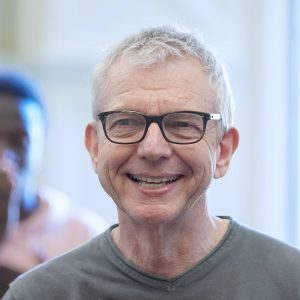 Andrew Wade (Faculty – MIO) was Head of Voice at the Royal Shakespeare Company at Stratford-Upon-Avon from 1990-2003. He joined the Royal Shakespeare Company in 1987 as Assistant Voice Director to Cicely Berry, where he oversaw all of the voice work for the Royal Shakespeare Theatre and the Swan Theatre. In conjunction with Cicely Berry, Mr. Wade recorded WORKING SHAKESPEARE: RSC MEETS USA (a broadcast series) produced and directed by Tom Todoroff, featuring Jeremy Irons, Emily Watson, Lindsay Duncan, Toby Stephens and other members of the Royal Shakespeare Company with US actors: Helen Hunt, Samuel L. Jackson, Claire Danes, Blythe Danner, Robert Sean Leonard, Cherry Jones, Victor Garber, Diane Venora, Tony Goldwyn and others.Mr. Wade trained at the Rose Bruford College, where he was made a Fellow and taught at many drama schools including East 15, where he was Head of Voice. Mr. Wade was Verse Consultant on the film SHAKESPEARE IN LOVE. He also coached Courtney Love for the role of Lady Macbeth, and worked on the musical LORD OF THE RINGS. Since leaving the RSC, Mr. Wade has continued to work all over the world in a freelance capacity. Currently, he is Voice Director at the Public Theater, Resident Voice Director at Theatre For A New Audience, and on the faculty at the Juilliard School. Mr. Wade also coaches voice & speech extensively for Broadway and West End productions including, most recently, MATHILDA: THE MUSICAL and HARRY POTTER AND THE CURSED CHILD. Mr. Wade’s West End Credits include: LA TRAVIATA, DONKEYS’ YEAR, and BOEING-BOEING.
Andrew Wade (Faculty – MIO) was Head of Voice at the Royal Shakespeare Company at Stratford-Upon-Avon from 1990-2003. He joined the Royal Shakespeare Company in 1987 as Assistant Voice Director to Cicely Berry, where he oversaw all of the voice work for the Royal Shakespeare Theatre and the Swan Theatre. In conjunction with Cicely Berry, Mr. Wade recorded WORKING SHAKESPEARE: RSC MEETS USA (a broadcast series) produced and directed by Tom Todoroff, featuring Jeremy Irons, Emily Watson, Lindsay Duncan, Toby Stephens and other members of the Royal Shakespeare Company with US actors: Helen Hunt, Samuel L. Jackson, Claire Danes, Blythe Danner, Robert Sean Leonard, Cherry Jones, Victor Garber, Diane Venora, Tony Goldwyn and others.Mr. Wade trained at the Rose Bruford College, where he was made a Fellow and taught at many drama schools including East 15, where he was Head of Voice. Mr. Wade was Verse Consultant on the film SHAKESPEARE IN LOVE. He also coached Courtney Love for the role of Lady Macbeth, and worked on the musical LORD OF THE RINGS. Since leaving the RSC, Mr. Wade has continued to work all over the world in a freelance capacity. Currently, he is Voice Director at the Public Theater, Resident Voice Director at Theatre For A New Audience, and on the faculty at the Juilliard School. Mr. Wade also coaches voice & speech extensively for Broadway and West End productions including, most recently, MATHILDA: THE MUSICAL and HARRY POTTER AND THE CURSED CHILD. Mr. Wade’s West End Credits include: LA TRAVIATA, DONKEYS’ YEAR, and BOEING-BOEING. -
Sharpening Your Craft with Chekhov with Tom McClane
Friday, March 21st. 2pm-5pm
Class Limit: 15 participants
Fee: $50Join us for an intensive acting masterclass exploring Three Sisters by Anton Chekhov.
This session will dive deep into the play’s rich and layered text, complex character relationships, and Chekhov’s unique ability to see through the characters’ eyes. Through scene work and practical exercises, actors will develop a nuanced understanding of the play’s emotional depth, while also sharpening their actors’ instinct and imaginative ability to connect with their characters’ wants, problems and circumstances.
The purpose of this class is to ask the question; What is a play? How does the play function on the level of ideas? How does the actor contribute as an artist to the ideas and problems contained within one? And what, if anything, does this contribute to the wider world?
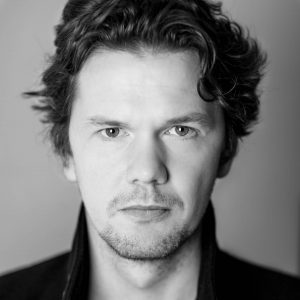
Tom McClane (Faculty – MIO/LTP) trained as an actor at Drama Centre London and as a director on the MFA at Birkbeck College. As an actor he worked regularly with Cheek by Jowl, Di Trevis and Owen Horsely. Directing credits include The Giant Killers at Wilton’s Music Hall, UK National tour. The White Devil at the Courtyard Theatre CSSD. Hedda Gabler, Ghosts and A Dolls House at Guildford School of Acting. Twelfth Night, Holy Ghosts, The Wild Duck, Three Sisters, and Here Comes a Chopper at Royal Birmingham Conservatoire. He was the trainee director at Jermyn Street Theatre, where he was the associate director on A Woman Before a Glass directed by Austin Pendleton. He was an associate on the Hound of the Baskerville at the English Theatre Frankfurt and the Deutsches Theatre Munich, directed by Lottie Wakeman. He has assisted Bijan Sheibani, Alice Hamilton, and Tim Crouch. He is a regular acting tutor at Drama Centre London, Royal Central School of Speech and Drama, Guildford School of Acting and Royal Birmingham Conservatoire. He is artistic director of Telos Theatre, an acting studio and theatre company based in London.
Greek Theatre Program Summer 2024 Highlights
 |
Greek Theatre Program Course Director Paul O’Mahony shares highlights from the 2024 Greek Theatre Program. |
BADA’s second-ever Greek Theatre Program cohort joined us this summer for an incredible month of study and practice which left an inspirational and indelible mark on all of us. The course is designed to explore Greek theatre from its origins in 5th Century BCE Athens to the present day, and we programmed an extraordinary array of theatre practitioners and academics in England and Greece. Every day on the course provided a rich and complementary combination of classes and experiences for the students. We started with 10 days in London with regular classes led by Marcus Bell from Goldsmiths in collaboration with Professor Fiona Macintosh, the director of Oxford University’s Archive of Performances of Greek and Roman Drama. The classes covered the origins of theatre in Athens, and the vital civic role it played. The group read and studied plays by Aeschylus, Sophocles and Euripides, and were introduced to modern adaptations as we explored their enduring influence in the theatrical landscape. Alongside classroom sessions, students had regular acting classes led by me and Evelyn Miller, and choral movement classes with Joyce Henderson (Associate artist of Complicité). Students were assigned scenes, speeches and choral odes to work on, which we continued to develop throughout the course.
We spent a fascinating morning at the British Museum exploring their Greek collections spanning from the Cycladic era all the way through to the Hellenistic Period. This was a great chance for us to see how Greek culture has been received in the modern world, and it laid the groundwork for important discussions about ownership and interpretation. We spent a good deal of time with the Parthenon Marbles which were controversially taken from Athens by Lord Elgin in the 19th Century. We’d see most of the other surviving Parthenon sculptures when we reached Athens.
We saw three shows while in London – the hit musical Hadestown ingeniously adapts the Orpheus myth in spectacular fashion and is now a fixture in the West End. Fabulous Creatures was presented at the Arcola Theatre and was a cabaret style show retelling the stories of women and female ‘monsters’ in the Odyssey. We were subsequently joined by director and writer Emily Louizou for a masterclass session on adaptation. I was delighted that we also saw the excellent production of Richard III at The Globe – a great opportunity to see outdoors theatre in a space with echoes of original Greek performance practice. We were also hugely fortunate to host a masterclass with Greg Hicks who reflected on his experiences in seminal productions of The Oresteia, Oedipus and the Bacchae.
 Our 10 days in London positively flew by, and then it was time for us to actually fly – to Greece. After a very early flight from London to Athens, our first stop was Delphi. What a place to begin our Greek journey, filled with mystery, excitement and its own unique serenity.
Our 10 days in London positively flew by, and then it was time for us to actually fly – to Greece. After a very early flight from London to Athens, our first stop was Delphi. What a place to begin our Greek journey, filled with mystery, excitement and its own unique serenity.
On our first morning we woke early and walked to the ancient sanctuary of Delphi. There we had a guided tour of the Sacred Way and Treasuries and encountered our first ancient amphitheatre. We sought out shade next to the Temple of Apollo and read the opening passage from Aeschylus’s Eumenides, when Clytemnestra rouses the Furies who are sleeping in the temple and instructs them to pursue Orestes to Athens:
“Pay me attention, chthonic goddesses:
this dream that summons you is
Clytemnestra, me!
You’re fast asleep, and feel no pity for my pain. I am the mother that Orestes killed – he’s got away.
You cry aloud, yet stay asleep. Get up, I tell you.
What’s your function other than inflicting pain?
Exhaustion joined in league with sleep
have drained the menace of your snakes.
Get him! Get him! Get him! Get him!
Look, here’s the trail!
You run in hot pursuit of your dream-prey
with yelping like a dog intent upon the chase.
Yet you are doing nothing!
Get up, I tell you!
Don’t let weariness subdue your power;
don’t let slumber lull you senseless.
Feel stabbing in your guts from my reproaches,
blast him with your bloody breath,
and shrivel him with scorching from your womb.
Go after him; once more pursue, and bleed him dry.”
It was the first of many extraordinary moments, when we were able to encounter the texts in the locations in which they’re set.
After the sanctuary we visited the Archaeological Museum which houses many of the incredible works of art discovered when Delphi was excavated in the 19th Century. Particular highlights include the famous Charioteer statue (in its original bronze), and the first known written example of musical notation. The rest of the day was filled with acting classes and a fabulous evening meal in a restaurant with a stunning view down to the Gulf of Corinth.
Our next stop was wonderful Nafplio, the first capital of the Greek Republic, situated on the Argolic Gulf. This was our base for 5 days, and we were fortunate to be hosted by Harvard’s Center for Hellenic Studies and the University of the Peloponnese. We ran acting classes in their spaces and were joined by David van Schoor (from Emory University) for a day in which we workshopped his new translation of Lysistrata. This was a fabulous opportunity to put our theory into practice, and to explore a new translation in the classroom and on our feet.
The night after re-reading sections from Aeschylus’s Agamemnon we visited ancient Mycenae to see the famous Lion Gate (where Clytemnestra welcomed Agamemnon home from Troy) and Argos where we visited the ancient theatre. This gave us a chance to test out our speeches and get a sense of the incredible acoustics. Even more memorable was the trip to Epidauros, one of the best-preserved theatres of the ancient world. As one of the students commented: “There’s something here that you can’t really get from photos. I spoke a line from Ajax and scared myself because the resonance is insane – it’s something you can’t get from video or photo….It’s absolutely incredible.”
Nafplio is a beautiful setting, and we had access to studio space that allowed us to work on scenes and speeches with new-found vigour, infused with our experience of “walking the roads”. Amidst the busy schedule there was even some free time to explore the city and the nearby beach…
This rest and recuperation put us in good stead for our next stop: Athens. Athens is an extraordinary, colourful and (sometimes) chaotic city where you find ancient ruins at the tube station, and small theatres on almost every street. We were staying in the Koukaki neighbourhood, just 5 minutes’ walk from the Acropolis Museum. The museum and the Acropolis itself were the focus of our first full day. The climb to the Acropolis took us past the Theatre of Dionysus and the Odeon of Herodes Atticus, giving us the chance to reflect on original performance settings and techniques, until we reached the summit and encountered the breathtaking Periclean monuments from which Athens derived such great renown. Later on, the museum offered amazing insight into the wider historical context of the site, and also provided an illuminating counter-narrative to how so many of its sculptures had ended up in the British Museum and elsewhere.
Throughout this time we reflected on the radical, challenging and subversive nature of tragedy – how it provoked and cajoled its original audience, and how related work today engages with complex issues of identity and justice. These plays were presented in the heart of a democratic experiment which demanded direct participation from those (few) who qualified for citizenship. We visited further sites (including the Ancient Agora and Kerameikos) which reinforced this connection between citizenship and public debate, and we absorbed this knowledge and these experiences for when we revisited scene work, speeches and chorus.
We had the immense privilege of working with actor and director Argyris Xafis during our time in Athens. Argyris is one of Greece’s foremost theatre practitioners, winning numerous awards. He has performed leading roles at Epidauros, and directed the National Theatre of Greece’s production of Ajax in 2022. He is now the artistic director of the wonderful Thission Theatre in central Athens which we used for workshops and acting classes during our stay. As well as an extended, in-depth session with Argyris where he introduced students to his approach to performing tragedy we had a memorable session with theatre director and movement specialist Sofia Paschou. We benefitted from her experience choreographing major productions of ancient tragedy and comedy, giving us further ideas to apply to our own chorus work.
The course brings together so many complementary aspects, encompassing multiple ways of learning about the social and historical context of the plays and their reception, an exposure to various approaches to performance, and the opportunity to see the sites where works first saw the light of day and where they have been subsequently reimagined. Our time in Athens brought together all these facets and left us full with ideas and inspiration. On our final evening we went for dinner just below the Acropolis at a restaurant called Thespis. As we ate and reflected on our time in Greece we were presented with one final amazing sight – an incredible full moon rising just after the summer solstice.
The next day we flew back to England for the last leg of the course – a week in Oxford. We were housed at beautiful St Hilda’s College, just a short walk from the Archive of Performances of Greek and Roman Drama where we spent the majority of our week. The APGRD is at the forefront of study and research into ancient drama, and we had access to its exceptional personnel and resources. Fiona Macintosh had curated an incredible series of classes and workshops which expanded our horizons still further, introducing us to artists and practice which would offer still more avenues for exploration. Students were able to pursue individual interests (a few participated in vase handling sessions) and we met with Oliver Taplin, whose translation of the Oresteia had lived with us throughout the course.
Naturally, performance was never far away. Rehearsals and one-to-one speech work took place whenever we had a spare moment -whether in classrooms, studio spaces or on the banks of the River Cherwell which flows through St Hilda’s. We continued acting classes and presented scenes and speeches amongst the statues of the cast gallery at the Ashmolean Museum. On the very final day we attended the APGRD’s Post-graduate Symposium (hosted with Royal Holloway) and shared a mixture of speeches and choral work which we constructed with Evelyn Miller.
The 2024 GTP cohort were an exceptional and eclectic bunch. The diversity of experiences they brought with them created a powerful mixture which allowed us to examine and perform these plays in the fullest way possible. I learned so much alongside them, and I’m hugely grateful to them, and to all the practitioners and academics who were involved.
40th Anniversary Events in LA & NYC this November
-
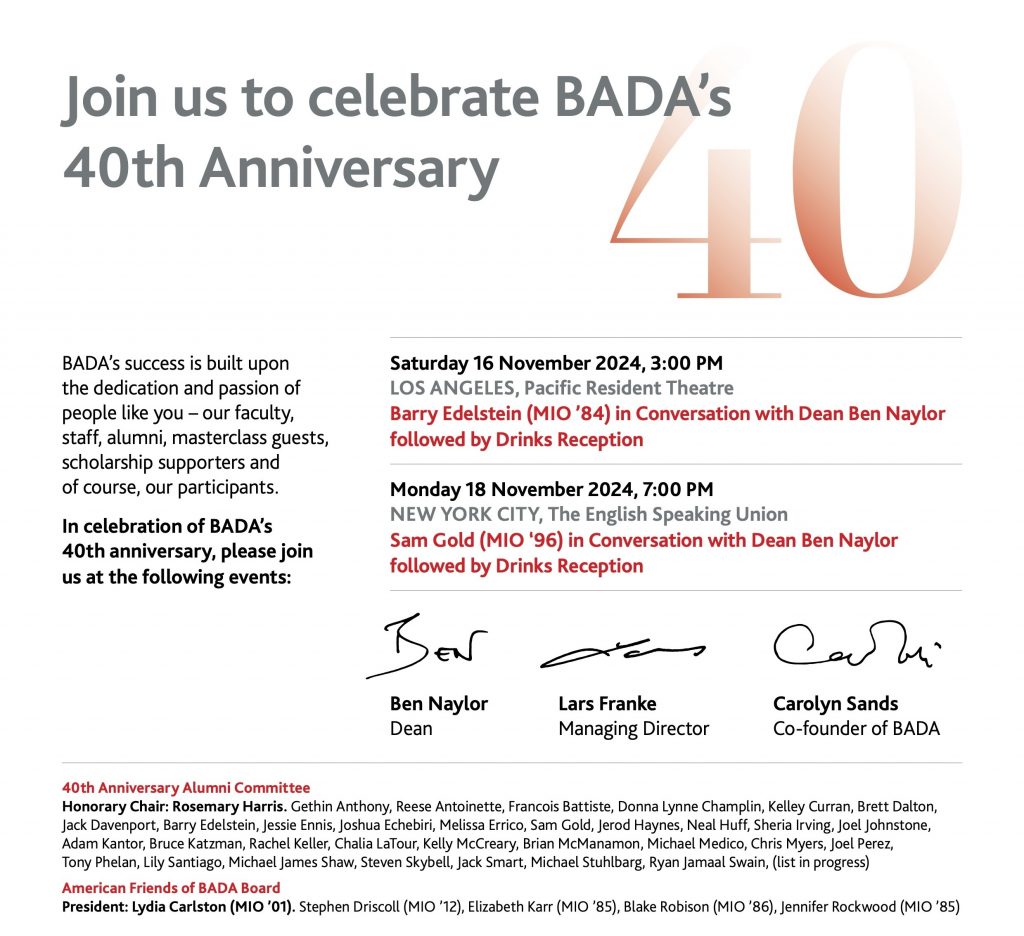
-
Saturday 16 November
3:00 PM – 6:00 PM
Pacific Resident Theater | 703 Venice Boulevard Los Angeles, CA 90291Join us in Los Angeles to celebrate 40 years of BADA with special guest: Barry Edelstein (MIO ’84), Artistic Director of The Old Globe
Barry will join Dean Ben Naylor in Conversation about “Transatlantic Shakespeare: Where Are We Now?” looking at contemporary Shakespeare production and training in the UK and the US. Come with your questions as we discuss why Shakespeare remains relevant to this day.
Afterward the Conversation, enjoy drinks and hors d’oeuvres with other alums and supporters!
CLICK HERE TO RSVP FOR LOS ANGELES
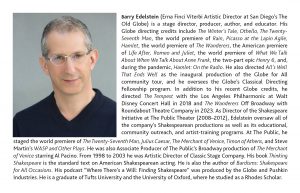
-
Monday 18 November
7:00 – 9:30 PM***New Venue*** Assembly Hall, Riverside Church | Riverside Drive between 120th & Seminary Row (enter at 91 Claremont Ave.)
Join us in New York City to celebrate 40 years of BADA with special guest: director Sam Gold (MIO ’96)
Sam will join Dean Ben Naylor in Conversation about “Transatlantic Shakespeare: Where Are We Now?” looking at contemporary Shakespeare production and training in the UK and the US. Come with your questions as we discuss why Shakespeare remains relevant to this day.
BADA Co-Founder Carolyn Sands will also be on hand to talk with guests and share stories from BADA’s early years.
CLICK HERE TO RSVP FOR NEW YORK CITY
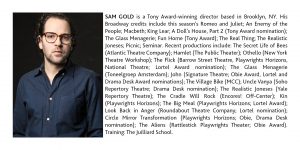
New London Theatre Program Video
The London Theatre Program (LTP) is BADA’s undergraduate conservatory theatre programme in London, accredited by Sarah Lawrence College. The course is designed for talented and dedicated students who are passionate about acting or directing, about the art of theatre, and who are seeking personal challenges and new perspectives.
Spring 2024 Alumni Events
Alumni and friends in Washington, DC; Los Angeles; and New York City — join us for our Spring 2024 alumni workshops and get-togethers!
| Saturday, March 30, 2024 LOS ANGELES |
2:30 PM – 5:30 PM
Alumni Shakespeare Workshop: “Julius Caesar” 1340 Macgowan Hall | UCLA We’ll take a deep dive into Shakespearean text, character and relationship through exploration of “Julius Caesar” 4.3. We’ll look at both psychological and formal approaches and the connections between them in one of the most deftly-constructed scenes in the canon. Participants who wish to work on the scene will be asked to learn the role of either Brutus or Cassius thoroughly; those who wish only to observe are very welcome to do so. Please note:
|
|
6:00 PM – 9:00 PM Alumni Drinks Barney’s Beanery, Westwood All BADA alumni and Friends are invited to join Ben and members of the BADA team for drinks at First drink on BADA!
|
|
| Friday, April 5, 2024 NEW YORK CITY |
10:00 AM – 5:00 PM
Alumni Open Workshop Sessions Ripley-Grier Studios | Studio 16P Bring a scene of your choice and your scene partner(s) and be ready to dive in and work with Ben in 1-hour sessions! Preference is given to 2 or more alums interested in working on a specific scene. Your scene can be anything (Shakespeare, Chekohv, McCraney, etc.)! Those interested in working on monologues, can sign up for our Monologue Waitlist. We will invite monologue participants to 30 minute sessions if the schedule allows. These will be open/masterclass style sessions and observers are encouraged to attend! We will have approximately 10 seats in the room for observers throughout the day.
|
| Saturday, March 23, 2024 WASHINGTON, DC |
2:00 – 6:00 PM
Observe a Workshop at Howard University Ira Aldridge Theatre, Howard University BADA alumni and friends are invited to observe Ben’s workshop with current Howard University students working on a scene from “Julius Caesar” followed by monologues. All attendees must register in advance with Jennifer Rockwood by clicking the RSVP link below in order to be added to the list! Unfortunately, last-minute reservations and drop-ins are not possible for this session.
|
Alum Da’Vine Joy Randolph wins Best Supporting Actress Oscar!
Congratulations to alum Da’Vine Joy Randolph (MIO ’09) who won the Academy Award for Best Supporting Actress for her work in the movie “The Holdovers” (alongside BADA alum Paul Giamatti (MIO ’89)) at the 96th Academy Awards last night! Da’Vine has also won the BAFTA, the Golden Globe, the SAG, and many, many others for her portrayal of Mary Lamb in the film.
—
Photo: Da’Vine at MIO 2009
Da’Vine Joy Randolph (MIO ’09) wins Supporting Actress BAFTA
Congrats to alum Da’Vine Joy Randolph (MIO ‘09) on winning the BAFTA for Supporting Actress for The Holdovers at the 2024 BAFTA Film Awards!
In her speech, Da’Vine shared her deep appreciation of her co-star, and fellow BADA alum, Paul Giamatti (MIO ’89)!
The BBC’s backstage coverage of the awards, Da’Vine discussed her love of the UK and her training at BADA:
Not to mention fellow US star Da’Vine Joy Randolph, who is a fully paid-up Anglophile. She started her career in London’s West End in Ghost the Musical and before that, studied at the British American Drama Academy in Oxford.
“I used to come in [to London] and see plays and I saw War Horse at the National Theatre, it changed my life,” she said backstage.
“It was so amazing, I called my school [back in the US] and said ‘I’m not coming back, I want to stay here.’ So you guys taught me the classics and I’m obsessed with Pinter and all that stuff.”
Two alumni win Golden Globes at the 2024 ceremony!
Congratulations to alums Paul Giamatti (MIO ‘89) and Da’Vine Joy Randolph (MIO ‘09) who both won Golden Globe awards for their work in the film The Holdovers at the 81st Annual Golden Globes ceremony.
Paul received the award for Best Male Actor – Motion Picture – Musical/Comedy and Da’Vine received the award for Best Supporting Female Actor – Motion Picture.
Highlights from the first Black British Theatre Program!
 |
Black British Theatre and Performance Course Director Oladipo Agboluaje shares highlights from the first session in 2023. |
About a year and a half ago, Eunice Roberts, the dean of BADA, invited me to design a course on Black British theatre. I am a playwright and had taught the subject at Goldsmiths, University of London and the London Study Centre, Florida State University. I was excited to introduce the course because while African American theatre is popular among audiences and studied in universities in the UK, I felt that Black British theatre did not receive the same attention in the States. Here would be an opportunity to correct that imbalance with our inaugural course.
I thought to design a course that would offer students an overview, providing them with the social, historical and artistic contexts out of which Black British theatre and performance arose. The course would intimate the students with seminal moments and works by influential playwrights and performers. We would look at Black British theatre’s inextricable link to the Diaspora and how this link has shaped Black identity in Britain. We would study seminal plays to illustrate these links and visit places of interest to cement the class learning. Academic teaching would be supplemented by workshops and masterclasses where the students would meet with major contemporary practitioners.
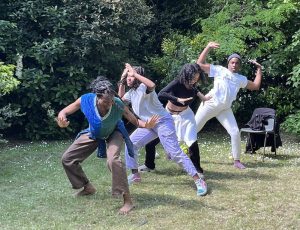 Patrice Naiambana’s course, ‘Diasporic Performance in a British Context’, analysed Othello from an African performance-based perspective. Each class was dedicated to reworking the body and voice of the students so they could re-engage with the text in new performative ways. The key learning outcomes were to give the students new performance tools and language, and a perspective on performance as a decolonial aesthetic. Tuesday mornings were a riot of sound and movement as the students put their learning into practice. Voice training was supplemented with a masterclass by Claudette Williams, course leader of the Acting BA at the Royal Central School of Speech and Drama, and one of the leading voice coaches in the country.
Patrice Naiambana’s course, ‘Diasporic Performance in a British Context’, analysed Othello from an African performance-based perspective. Each class was dedicated to reworking the body and voice of the students so they could re-engage with the text in new performative ways. The key learning outcomes were to give the students new performance tools and language, and a perspective on performance as a decolonial aesthetic. Tuesday mornings were a riot of sound and movement as the students put their learning into practice. Voice training was supplemented with a masterclass by Claudette Williams, course leader of the Acting BA at the Royal Central School of Speech and Drama, and one of the leading voice coaches in the country.
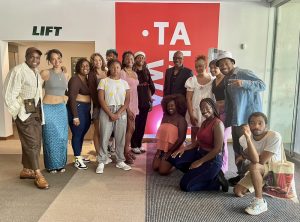 The weekly visits gave us opportunities to see different parts of London such as Brixton, the symbolic home of Black people in Britain. We didn’t get the visit the Black Cultural Archives as it was shut for emergency repairs, but we got to visit the market and the brand-new Brixton House theatre. The market’s diversity was exemplary of a changing Brixton. It gave a snapshot of the waves of immigrants that have made the place their home. A trip to Talawa Theatre, Britain’s longest existing theatre company to meet with artistic director Michael Buffong took us to their venue in Croydon outside London.
The weekly visits gave us opportunities to see different parts of London such as Brixton, the symbolic home of Black people in Britain. We didn’t get the visit the Black Cultural Archives as it was shut for emergency repairs, but we got to visit the market and the brand-new Brixton House theatre. The market’s diversity was exemplary of a changing Brixton. It gave a snapshot of the waves of immigrants that have made the place their home. A trip to Talawa Theatre, Britain’s longest existing theatre company to meet with artistic director Michael Buffong took us to their venue in Croydon outside London.
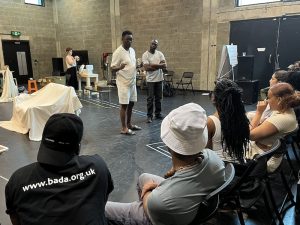 Kwame Kwei-Armah, the artistic director of the Young Vic, graciously let the class sit in on a rehearsal for his play, Beneatha’s Place, which was the theatre’s upcoming show. Most of the students would not be around for when it opened, so they were able to get a peak of what the show was about and more importantly to see a major writer-director at work. Kwame was generous with his time, fielding questions from us during the break period. We were also grateful to the company for letting us watch them go through their processes bringing the play together.
Kwame Kwei-Armah, the artistic director of the Young Vic, graciously let the class sit in on a rehearsal for his play, Beneatha’s Place, which was the theatre’s upcoming show. Most of the students would not be around for when it opened, so they were able to get a peak of what the show was about and more importantly to see a major writer-director at work. Kwame was generous with his time, fielding questions from us during the break period. We were also grateful to the company for letting us watch them go through their processes bringing the play together.
Actor and historian Burt Caesar took us on a curated tour of the Museum of London Docklands in Canary Wharf. Burt was one of the advisers of the slavery exhibit and explained in detail the history of British involvement in the slave trade.
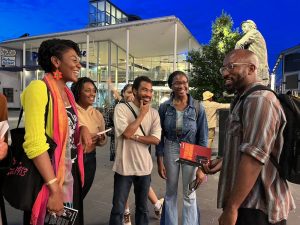 During the four-week period, we were lucky there were plays relevant to the course for us to see. Most of the creatives in these shows took up our invitation to meet with us. We enjoyed Jennifer Lunn’s Es and Flo at the Kiln and a few days later enjoyed the company of the two leads Liz Crowther and Doreene Blackstock at BADA. Matthew Xia, artistic director of ATC had already agreed to talk to us about directing the UK premiere of Tambo and Bones. On the night we went to see the show, Matthew introduced us to the playwright Dave Harris who had come down from the States for the rehearsals. Dave promised to meet us after the show. Let’s just say that after the show, Philly was in the house and everyone in East London knew it!
During the four-week period, we were lucky there were plays relevant to the course for us to see. Most of the creatives in these shows took up our invitation to meet with us. We enjoyed Jennifer Lunn’s Es and Flo at the Kiln and a few days later enjoyed the company of the two leads Liz Crowther and Doreene Blackstock at BADA. Matthew Xia, artistic director of ATC had already agreed to talk to us about directing the UK premiere of Tambo and Bones. On the night we went to see the show, Matthew introduced us to the playwright Dave Harris who had come down from the States for the rehearsals. Dave promised to meet us after the show. Let’s just say that after the show, Philly was in the house and everyone in East London knew it!
Among the artists’ Q&As, we had in big hitters Winsome Pinnock and Roy Williams. Like, Kwame, these two writers have contributed in no small measure to Black British storytelling. Having them in the building was a treat. Listening to them talk about their careers gave us a sense of what it was like working in British theatre and illuminated our reading of their plays.
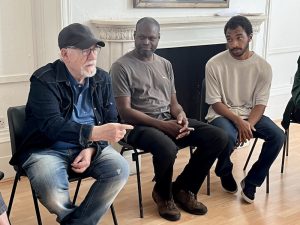 We had a surprise visit from Brian Cox of Succession fame. I’d been a fan of Brian’s work long before the HBO hit but it was an event to meet him in the flesh. He was passionate about Shakespeare and the importance of learning how to perform his work for an actor.
We had a surprise visit from Brian Cox of Succession fame. I’d been a fan of Brian’s work long before the HBO hit but it was an event to meet him in the flesh. He was passionate about Shakespeare and the importance of learning how to perform his work for an actor.
It has been an adventure running this course for the first time. I could not have asked for a better first cohort of students along with FAMU professor Kimberly Harding who audited the course. It was special in too many ways to explain. I cannot wait for the next cohort to experience their own adventures come June 2024.
Header photo: 2023 Participants with Playwright Winsome Pinnock
To learn more about Black British Theatre and Performance or for application details and deadlines for the 2024 session, visit our Black British Theatre and Performance page.
Alumni Workshop & Drinks in NYC | 11 November
Alumni and friends are invited to join BADA’s new Dean in New York City on November 11th for an Alumni Shakespeare Workshop and Alumni Drinks.
| 2:30 – 5:30 PM | Shakespeare Workshop We’ll take a deep dive into Shakespearean text, character and relationship through exploration of Julius Caesar 4.3. We’ll look at both psychological and formal approaches and the connections between them in one of the most deftly-constructed scenes in the canon.Participants who wish to work on the scene are asked to learn the role of either Brutus or Cassius thoroughly; those who wish only to observe are very welcome to do so. Ripley-Grier, Studio 10D
|
| 6:00 – 9:00 PM | Alumni Drinks All BADA alumni and Friends are invited to join Ben and members of the BADA team for drinks at
The Tailor Public House, Upstairs First drink on BADA!
|
You must register in advance for the Workshop; an RSVP is not required for the Alumni Drinks but it is appreciated.
Alum Tarell Alvin McCraney (MIO ’05) to Geffen Playhouse
Congratulations to alum Tarell Alvin McCraney (MIO ’05) who was just appointed artistic director for Geffen Playhouse in Los Angeles!
“Playwright and Academy Award-winning screenwriter Tarell Alvin McCraney has been named artistic director of the Geffen Playhouse. The appointment, which is effective immediately, places one of the most accomplished dramatists of his generation at the helm of the city’s most prominent Westside theater.”
Read the full story at the LA Times.
—
Header Photo: Alum Tarell Alvin McCraney (MIO ’05), Alum & Trustee Lydia Carlston (MIO ’01), and former Dean Ian Wooldridge at the 2017 American Friends of BADA fundraising event in New York City.
“Lessons from Black British theatre” in ArtsPro
“In addition to lectures, our busy schedules were filled with afternoon workshops, live theatre and cultural excursions. Acclaimed Black playwrights, including [Winsome] Pinnock and Roy Williams, generously shared their lives and careers, as well as challenges and triumphs in the London theatre scene.”
2023 Black British Theatre alumna Kimberly Harding, Associate Professor of Theatre at Florida A&M University, wrote about her long journey to studying Black British theatre in London and her time at BADA on the inaugural Black British Theatre course for Arts Professional.
Read the piece on ArtsPro’s website.
Welcome to Ben Naylor, Dean of BADA!
We are excited to welcome Ben Naylor to BADA as he steps into the role of Dean! After a long and comprehensive search process, Ben was appointed in April to succeed Eunice Roberts; he has spent the past several months getting to know BADA, our programs, and our partners in advance of his official start today.
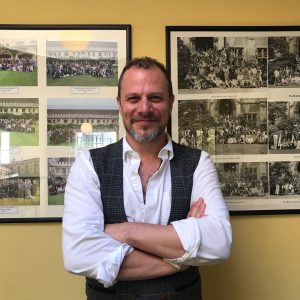 Ben joins BADA from Royal Central School of Speech and Drama, University of London, where he worked from 2006 until earlier this year, and where he was Course Leader for the MA Classical Acting, a one-year advanced actor training programme he designed, and Senior Lecturer in Acting.
Ben joins BADA from Royal Central School of Speech and Drama, University of London, where he worked from 2006 until earlier this year, and where he was Course Leader for the MA Classical Acting, a one-year advanced actor training programme he designed, and Senior Lecturer in Acting.
He brings to BADA a wide and diverse range of experiences as a director, actor, researcher, and as an educator. In addition to his work at Central, Ben has worked extensively with American students while teaching at Florida State University’s Theatre Academy London, Shakespeare’s Globe, and the Shakespeare Centre in Stratford-upon-Avon. He also works across the UK and internationally as a director, with projects in Italy, Spain, Greece, Germany, Israel, Australia and Aotearoa/New Zealand.
“We’re thrilled to have Ben take up the mantle of Dean of BADA,” says Richard Johnson, Chair of the Trustees of BADA. “Ben’s experience, particularly in actor training and UK/US partnerships, makes him the ideal person to take the helm and to build on BADA’s long history of successes, and innovate and expand on the work of his predecessors.”
Ben joins the BADA Team as we get ready for the arrival of the Fall 2023 London Theatre Program students in just over a week’s time and as we prepare to open applications for the 2024 sessions of our two newest summer intensives, Greek Theatre and Black British Theatre, later this fall.
Celebrating the life of Tony Branch
This past Sunday, family and friends gathered to celebrate the life of Anthony ‘Tony’ Branch, who founded BADA along with Carolyn Sands in 1984.
Hosted by Tony’s niece, Antonia, the memorial service at St. Paul’s (The Actors Church) and the reception that followed at the BADA premises brought together family, friends, BADA faculty and BADA alumni from as far back as the inaugural Midsummer in Oxford program. Speakers included co-founder, Carolyn Sands, alum Will Cooke (MIO ’85), and alum Alan Cox (MIO ’88), son of BADA’s Patron, Brian Cox, who was there representing his father.
Guests cried, and laughed, shared memories and made new ones. It was a true celebration of life with much gratitude shared for the man with whose idea continues to bring people together.
Announcing BADA’s new Dean
After a wide-ranging and rigorous search process, the Board is delighted to announce that Ben Naylor has been appointed as Dean of BADA to succeed Eunice Roberts who steps down at the end of August.
Ben joins BADA from the Royal Central School of Speech and Drama, University of London, one of the UK’s leading drama schools. Ben joined Central in 2006 and during his time there he has taught a huge range of courses. He is currently Senior Lecturer in Acting and Course Leader for the MA Classical Acting, a one-year advanced actor training programme he designed.
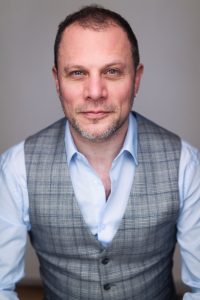
Ben Naylor photograph by Cam Harle
He brings to BADA a wide range of experience as a director, acting teacher, mentor, researcher and educator.
Ben has worked extensively with American students, including teaching at Florida State University’s Theatre Academy London, Shakespeare’s Globe and the Shakespeare Centre in Stratford-upon-Avon, as well as work with many other US universities. He has also taught at Cambridge University, Royal Holloway, Kingston University and LAMDA (the London Academy of Music and Dramatic Art).
As a director, Ben has worked across the UK and internationally with projects in Italy, Spain, Greece, Germany, Israel, Australia and Aotearoa/New Zealand. He has researched and written on Shakespeare, and early modern performance, and has worked as a script consultant and editor, including original translations for classic European plays.
Ben trained as a director at the National Theatre, Young Vic, the Caird Company and in the West End, and subsequently trained as an actor at Drama Centre London.
We are confident that Ben’s experience and expertise will be of huge benefit to BADA and we very much look forward to working with him in the future.
Ben will officially assume the role of Dean on 1st September but will be meeting our staff, faculty, partners and students in the coming months as he familiarises himself with BADA.
Please join us in welcoming Ben to BADA and the BADA family.
| Maggie Whitlum, Interim Chair of the Trustees British American Drama Academy |
A Message from the Chair of BADA
I’m writing to share the news that Eunice, our wonderful Dean since 2017, has decided to step down. It goes without saying that we shall miss her enormously.
Eunice has been associated with BADA for many years, teaching on both the Midsummer Conservatory Program and the London Theatre Program, before joining Christopher Cook as Joint Dean, and then assuming the role as sole Dean the following year.
We have been immensely fortunate to have her energy, wisdom and commitment during what has proved to be some of BADA’s most challenging years.
Eunice has worked tirelessly to expand BADA’s offer and to strengthen ties with its alumni. Under her guidance, BADA has launched three exciting new courses: Greek Theatre, Black British Theatre, and the Shakespeare in London Program.
Eunice led BADA through the two immensely challenging Covid years, with repeated lockdowns, during which we had to close our doors to students. During those difficult days, she created dozens of online opportunities for BADA’s alumni to come together and hone their skills with online masterclasses and workshops, alongside a rich stream of Conversations – with BADA Patron Brian Cox, Elliot Barnes-Worrell, Antoinette Chinoye Nwandu, Miriam Margolyes and Sir Patrick Stewart, among many others. She also directed more than twenty online Shakespeare readings with BADA alumni.
BADA has now successfully emerged from the pandemic with higher student numbers than ever before with a great deal of credit for that going to Eunice’s tenacity, resilience and creativity.
So Eunice leaves us in a very strong and vibrant state in which to face the future. We are all extremely grateful to her for her strong leadership, her tireless care for students and faculty, and her deep commitment to the BADA family.
We all wish her well in her future adventures.
| Maggie Whitlum, Interim Chair of the Trustees British American Drama Academy |
Please note the Board will be announcing Eunice’s successor next week.
Audition Tour 2023 | Alumni Gatherings
Alumni & friends in LA, NYC, and DC — Dean Eunice Roberts will once again be traveling the US this Spring for our 2023 Audition Tour and would like to invite the BADA community to join her in:
| Los Angeles | March 19th 4:00 – 6:00 PM |
Laurel Hardware 7984 Santa Monica Blvd |
| Washington, DC | March 30th 5:00 – 7:00 PM |
Clyde’s of Gallery Place 707 7th Street, NW |
| New York City | April 4th 6:00 – 8:00 PM |
The Wheeltapper Pub (part of the Fitzpatrick Grand Central Hotel) 141 East 44th Street at Lexington Avenue |
Please RSVP using the form below so we can make sure we’ve reserved a large enough space!
Highlights from the inaugural Greek Theatre Program
 |
Greek Theatre Course Director Paul O’Mahony shares highlights from the first Greek Theatre Program in 2022. |
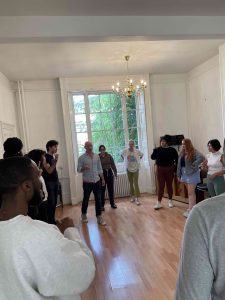
Class with Course Director Paul O’Mahony
Our inaugural Greek Theatre Program ran in June 2022 with a brilliant 17-strong group drawn from across the US. My intention when designing the course was to combine methods of learning, exceptional theory and world-class practice led by leading figures in the UK and Greece – over the course of 4 weeks we all had the chance to put that idea to the test in the most incredible and inspiring locations imaginable. I’ve always been fascinated by ancient theatre and during the first lockdown of 2020 I started an online theatre project with Harvard’s Center for Hellenic Studies – we challenged ourselves to live stream a different tragedy every week. Our aim was to create a community at a time when we were all experiencing isolation in lockdown, and to explore what these ancient plays would illuminate in our own lives and experiences. Over the course of 40 consecutive weeks in 2020 we performed every extant tragedy with an incredible international ensemble (including several BADA alums) and it transformed how I saw these plays. This insight and passion led to the creation of the Greek Theatre Program.
The first leg of the course took place in London, with two weeks at BADA’s Camden base. The academic schedule was organised by Fiona Macintosh (Professor of Classical Reception and Director of the Archive of Performances of Greek and Roman Drama at Oxford University) and sat alongside regular studio time in which we explored text and performance on our feet. Fiona taught with Marcus Bell (lecturer at Goldsmiths), covering a vast array of topics to provide crucial context for the plays. I worked on the acting side – exploring tragedy on our feet, working with several plays.
Movement classes were led by Joyce Henderson from Complicité. Joyce is an amazing artist and teacher, and she introduced an incredible approach to exploring chorus which the group really responded to. We were also fortunate to have Leo Wringer teaching Shakespeare in Performance – I wanted everyone to have the chance to explore classical texts from various eras.
As if all this teaching wasn’t enough to stimulate the mind, our group also had the opportunity to enjoy two superb productions in London which reinvented Greek tragedy and myth in wildly different ways. Punchdrunk’s The Burnt City is an immersive production that takes place in a vast former munitions factory in Woolwich; each audience member is masked, and is able to walk freely around the immaculately realised set. It’s an extraordinary production.
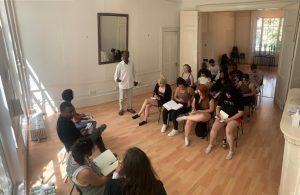
Shakespeare in Performance with Leo Wringer
Girl on an Altar also played with myth – this time imagining the consequences for Clytemnestra if she didn’t exact revenge on Agamemnon when he returned home. Brutal, poetic, compelling and uncomfortable to watch, this was a brilliant production superbly acted. Nina Bowers, who played Cassandra in Girl on an Altar, visited BADA to run a masterclass for the group. The brilliant Evvy Miller also led an active masterclass session which explored yet more approaches to performance. In addition to all this during our two weeks in London we visited the British Museum and were given an electric talk by Claire Catenaccio from Georgetown University on Greek productions in the US today.
The result of all this was a total immersion in Greek theatre which set us up perfectly for our next location: Greece.
The flight from London to Athens takes just under 4 hours, taking us across mainland Europe almost to its most southeastern point. Upon arrival we were met by Kostas Arampapaslis, a philosophy professor and our companion throughout our travels in Greece. Our first location was Delphi, arriving there in the dead of night after passing through the beautiful lit-up village of Arachova on the slopes of Mt Parnassus. We checked into our hotel and grabbed some rest before our first morning in Greece.
Waking up in Delphi is an experience like no other: it’s place that has a magic and rhythm all of its own. After breakfast overlooking the valley with views down to the village of Itea nestled by the waters, we visited the sanctuary – a UNESCO World Heritage Site and a place considered sacred by ancient Greeks who believed that Delphi was the centre of the world, its omphalos or navel. It was in this sanctuary that Apollo’s oracle gave cryptic advice to travellers from across the ancient world. We were guided round its incredible treasuries, theatre and stadium – and we even read the opening of Euripides’ Ion at the Temple Of Apollo – the exact location where the play takes place.
In the afternoon we had the opportunity to rehearse our scenes at a private amphitheatre with views down to the Gulf of Corinth canal. It was a stunning setting, and truly illuminating to play our scenes and speeches outdoors – the way they would have been performed originally.
The following day we traveled to Nafplio where we stayed for three nights. Nafplio was the first capital of Greece when it gained its independence in 1821. This was the first chance for everyone to enjoy some proper time off! Nafplio is situated on the Argolic Gulf, with beaches in walking distance from the town centre. The town itself is truly beautiful, with it’s pastel-coloured buildings linked by vibrant bougainvillea vines.
Harvard’s Center for Hellenic Studies has its Greek base in Nafplio, in a stunningly bright white building with blue shutters overlooking the port. We had access to their teaching rooms during our stay and we used them to good effect: we carried out more scene work, participated in seminars with academics from the University of the Peloponnese, and tried creative writing exercises.
Nafplio is perfectly located for visiting some of the most remarkable sites of the ancient world. Our first day trip was to Mycenae where we saw the so-called Tomb of Agamemnon, and the monumental Lion Gate (dating from approx 1200 BCE). Our chorus work with Joyce focussed on a chorus from Agamemnon, so it was incredible to walk these routes. On the second day in Nafplio we visited the monumental theatre of Epidaurus which dates from the late 4th Century BCE. The theatre’s acoustic is extraordinary – I sat all the way at the top of the auditorium while students took it in turns to recite speeches from tragedy or Shakespeare. Without any amplification I could heart each one of them crystal clearly. We even had the chance to perform as a chorus, acting the first choral ode from Agamemnon – it still gives me goose bumps just thinking about it!
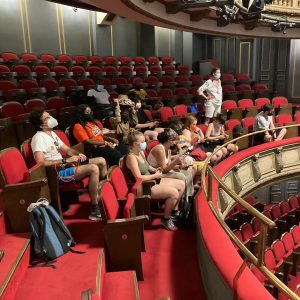
Sitting in on rehearsals of “Ajax” at the National Theatre of Greece
After one last night in Nafplio our coach driver drove us two hours to Athens – what a contrast! Athens is a bustling, beautiful city of 5 million people – it has exceptional theatre facilities and an extraordinary history. We stayed close to the Acropolis, right at the very heart of the ancient and modern Athens. Our fantastic guide Smaro showed us round – not only to the Acropolis (and its brilliant museum), but also along the route of the Panathenaic Procession and around the ancient agora. We had workshops with prominent Greek choreographer and director Sofia Paschou, and also had the chance to work with Agyris Xafis. Argyris is a celebrated actor and director with the National Theatre of Greece who was in the midst of rehearsals for the National’s production of Ajax (which opened in Epidaurus later that summer). Over the course of a 3-hour workshop he let us into his process and provided incredible insights for how to approach tragedy in performance. To cap it all he secured permission for us to sit in on rehearsals of Ajax at the National, so that we were able to watch a sneak preview of the show. This journey from theory to practice is exactly what the course set out to do, and it was a real highlight of our month together.
In each location we stayed we shared dinner on the final evening, and Athens was no exception. Our restaurant of choice was Thespis (appropriately enough) and offered us rooftop dining with delicious traditional Greek cuisine. It was the perfect end to a packed and fulfilling time in Greece.
The final leg of the course took place in Oxford. After spending time in the very places where these plays premiered over 2500 years ago, Oxford was the perfect location for exploring how these works of art were handed down to us – and how people reinterpret them today. Once again we teamed up with Fiona Macintosh from the APGRD who curated an exceptional programme of artists and academics to run sessions for us. If that were not enough, we also performed amongst the statues of the Ashmolean Museum and at a conference on our final evening.
The Greek Theatre Program in 2022 was an unparalleled combination of events, experiences, locations and people – every day brought a fresh challenge, a new perspective and a unique experience. I want to thank the wonderful 17 people who formed such an incredible ensemble during our time together and I look forward to welcoming future students to this exceptional course.
Visit our Greek Theatre page for more information about the course and to submit your application.
Anthony ‘Tony’ Branch
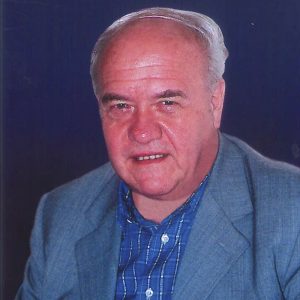 It is with great sadness that we announce the passing yesterday of Anthony ‘Tony’ Branch, who founded BADA along with Carolyn Sands in 1984.
It is with great sadness that we announce the passing yesterday of Anthony ‘Tony’ Branch, who founded BADA along with Carolyn Sands in 1984.
Tony’s vision of providing an American student body with access to top British theatrical practitioners remains a unique offering to this day. A formidable personality, Tony is remembered for his great energy and his deep commitment to the best of what the British theatrical tradition has to offer. He will undoubtedly be remembered for the impact his mission has had on BADA students throughout the years and actor training in general.
Summer & Fall 2023 Program Dates
Announcing the dates & deadlines for our Summer & Fall 2023 Programs!
- Midsummer in Oxford Program (Actors 18+)
- 8 July – 6 August
- Midsummer Conservatory Program (Actors 16-18)
- 15 July – 5 August
- London Theatre Program (College Juniors/Seniors)
- 9 September – 16 December
- Greek Theatre (Participants 18+)
- 2 June – 30 June
- Applications due: 1 February
- Black British Theatre (Participants 18+)
- 27 May – 24 June
- Applications due: 15 February
Photo: Masterclass with Paul O’Mahony, Midsummer in Oxford 2022
Statement from the Chair of BADA and the President of AFBADA
On the death of George Floyd in 2020 at the hands of police, and in response to the rise of Black Lives Matter, we, the Board of BADA, publicly affirmed our commitment to anti-racism and pledged a rigorous and comprehensive review of all aspects of our academy.
In keeping with our promise to drive and monitor change in a transparent and accountable way, we would like to update you on the progress we have made since our last report in 2021.
- As a direct result of a review of our curriculum offer, we have launched a new four-week progam – Black British Theatre – which explores contemporary Black British theatre and performance. Developed and led by playwright and director Oladipo Agboluaje, the course analyses play texts by major Black British writers framed by theories of identity, representation, nationalism, race, gender, sexuality and class.
- Progress continues with our ambitious fundraising targets to provide scholarships for underprivileged and historically under-represented students to study at BADA. A new fundraising committee at board level has been created to step up these efforts to realise those targets and widen access.
- In a continuing effort to diversify our board of trustees, we have conducted a further recruitment round, led by an EDI expert. As a result, we have appointed four new trustees. Together with the resignation of three long-standing trustees, we now have a significantly younger and more diverse and representative board steering BADA.
- The Covid-enforced pause in our face-to-face training provided an opportunity to revisit our staffing structure and the makeup of our faculty. Using best practice recruitment methods, we have successfully increased diversity and representation among staff, faculty and visiting speakers.
- Our mandatory unconscious bias and diversity training for trustees, staff and faculty is ongoing. Delivered by a leading Black theatre company, all newcomers to BADA are required to complete the training.
- The work of BADA’s Diversity Action Group continues bringing together faculty, staff and alumni to provide an open space for discussion of all Justice, Equality, Diversity and Inclusion (JEDI) matters in the academy.
- Last, but not least, we continue to strive to improve the diversity of our student intake. Members of our diverse alumni cohort use social media to encourage potential students to study abroad in the vibrant, multicultural city of London.
We recognize there is still much work to be done but we are proud to deliver our broader curriculum and pleased the processes we have introduced are beginning to be fully embedded into our ways of working.
Chuck Youmans Remembered
Everyone at BADA was deeply saddened to learn of the recent passing of Chuck Youmans (MIO ’86), an alumnus and a long-time member of the BADA family who returned to Oxford as a member of staff each summer for more than 20 years. Christopher Cook, who is joining the BADA Council and was formerly Dean of the Midsummer Conservatory Program, shares his thoughts about his friend Chuck.
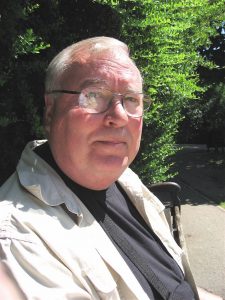
He was always Chuck at BADA and never Charles Edwin Youmans Jr: with a smile as wide as the Grand Canyon and an infectious laugh that brought the sun out. He auditioned for BADA’s Midsummer in Oxford Program in 1986 with a piece from Eliot’s Murder in the Cathedral and made the pilgrimage again the next year to join the MIO’s administrative team at Balliol. That was Chuck’s Summer history for the next twenty-three years. And when he returned to Chicago he would offer Tony Branch a home from home when BADA’s Joint Founder went out on recruiting trips.
Chuck was ‘can do’ and ‘hands on’, and gifted with a special empathy for the actors who came to Oxford, young and older and in between. Theatre was under his skin. He was also a master of pouring oil on troubled waters knowing how to listen and in listening soothing bruised and sometimes battered egos.
When it was suggested that he might become the Administrator of the Midsummer Conservatory Program – or Baby Balliol as he christened it – I worried that he might miss his troop of friends on the MIO, particularly the redoubtable Virginia de Vaal. But with typical ease he looked after our under 18-year-olds through the day while quietly commuting up The Broad to Big Balliol of an evening.
He was everything an Administrator should be, flexible, open to new ideas and a master at sowing harmony amongst the faculty. He had a gift for ‘back pocket’ finance finding funds for all manner of impish schemes. When my attempts to produce a grand dinner on two electric rings fused the electrics in two buildings, it was Chuck who sorted us out. And his broad shoulders happily accommodated my occasional laments about life, art and the whole damn thing.
Above all it was the students he cherished. He understood the peaks and troughs of adolescence and was as handy with encouragement as he was with a handkerchief to mop the tears. With infinite patience he made sure they kept in touch with regular emails to their families while they were in Oxford, while fielding calls from concerned parents with the kindness of an honorary uncle.
When we saw the gleam in his eye on Open Days as students showed their peers and parents what they had learned we readily understood it was the best of all rewards for him.
Remembering Penny Wesson
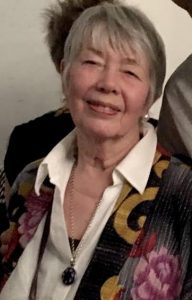 It was with great sadness that we learnt of the recent passing of Penny Wesson.
It was with great sadness that we learnt of the recent passing of Penny Wesson.
Penny, who died this February, was a founding trustee of BADA who generously lent the Academy the skills and wisdom she had honed as a theatrical agent looking after actors and latterly directors. She brought level-headed common sense to difficult decisions faced by the Board, and unerring good humour. She took a deep interest in our students and rarely missed the end of Semester performances. She delighted in the Midsummer in Oxford program and always made a point of visiting Balliol and then Magdalen Colleges on Open Days. Without her continuing support BADA and the Midsummer Conservatory Program in particular would not have flourished as they have.
Her love of theatre was combined with a personal passion for painting and textile design, and had circumstances been different when younger she might have become the artist that she was beginning to train to be. Above all Penny was that rare thing a truly good person with an instinct for friendship and who saw and sought out the best in people.
Announcing the Black British Theatre Program
The British American Drama Academy is pleased to announce its newest course: Black British Theatre.
This four week summer intensive, led by playwright and BADA Faculty member Oladipo Agboluaje, provides an overview of Black British theatre by tracing the social, cultural, intellectual and political developments that have come to define the theory, practice and aesthetics of its practitioners. We will interrogate how Black people have been represented on stage by White writers before plays by Black theatre practitioners began to gain greater visibility on the British stage.
Play texts by major Black British Writers such as Roy Williams, Winsome Pinnock and debbie tucker green, will be analysed from social and cultural contexts framed by theories of identity, representation, nationalism, race, gender, sexuality and class. Masterclasses and workshops will be conducted by leading practitioners and playwrights including (schedules permitting): Ola Animashawun, Kwame Kwei-Armah, Chino Odimba, and Roy Williams.
Eunice Roberts, Dean of BADA, says “BADA is so delighted to be adding this to our wide offering of programs. Students will study in London at BADA’s home base in Gloucester Gate in Camden, offering a unique opportunity not only to explore all that the theatre has to offer in this world-renowned city but the ability to investigate the diverse history that has made London what it is today. Students will have some of the most influential and exciting instructors that will bring a richness and depth to this course.”
Course Director Oladipo Agboluaje adds “This course presents an exciting opportunity for students to learn about and experience Black British theatre and performance. We will analyse key play texts that dramatise the Black-British experience as well as identify their dramaturgical and aesthetic underpinnings. There will be visits to places of interest and to performances that will support our understanding of the environment in which these plays are developed. We shall invite key professionals to shed light on their practice and to offer insight into the practicalities of working in the British theatre industry.”
The course is open to applicants at the undergraduate and graduate level as well as those who are not currently enrolled in educational programmes. Applicants aged 18 must have at least one year’s experience away from home to be considered for this course. Alumni of other BADA courses are encouraged to apply!
For full course details, 2022 dates, and deadlines, or to submit an application, visit our Black British Theatre page.
A Statement from the Chair of BADA and the President of AFBADA
Last year we, the BADA board, publicly affirmed our commitment to anti-racism and to equality for all our staff, faculty, students and alumni. We pledged to use the moment in history that arose from the killing of George Floyd and the rise of the Black Lives Matter movement as an opportunity to implement fundamental change in our organization and to embrace diversity across all markers to challenge inequality. We promised to do that in a transparent and fully accountable manner. One year on, we would like to update you on the progress we have made.
- We have taken this time to carry out a rigorous and comprehensive review of every aspect of our institution, which we are using to drive and monitor change to actively increase diversity and representation within our organization.
- We have introduced mandatory and ongoing unconscious bias and diversity training for trustees, staff and faculty of BADA, delivered by a leading Black theatre company. Staff have attended workshops and conferences to keep abreast of developments in this field.
- We have reviewed and updated our offer to students ready for our relaunch of in-person training in London in Fall 2021, after an enforced break of 18 months.
- We have embarked on an ambitious fundraising campaign with a target of $1.7 million to fund 30 full scholarships for underprivileged students to study at BADA over the next 3 years.
- We are currently recruiting new staff and faculty to meet the needs of returning students, using best-practice recruitment methods with the aim of increasing diversity.
- We have successfully appointed 4 new trustees to the BADA board, significantly increasing the diversity of voices governing the organization.
- We have restructured our staff team to include a role dedicated to student support and welfare to ensure a positive, safe and inclusive environment, conducive to wellbeing, and social and intellectual growth.
- We have established a Diversity Action Group within BADA bringing together alumni, faculty and staff to provide an open space for ongoing discussion and review of all Justice, Equality, Diversity and Inclusion (JEDI) matters.
- We have developed fruitful relationships with external JEDI consultants and diverse theatre organizations to advise us and to inform the changes we are making.
- We have and will continue to invest significant time and resource into ensuring that BADA makes the changes required to ensure it is an anti-racist and inclusive Academy for all.
We recognize that these are only the first steps. There is still work to be done to more fully reflect the society in which we live. BADA is committed to continuing this journey.
Tim Denham (1946 – 2021)
It is with incredible sadness that we announce the recent passing of Tim Denham, former Managing Director and a long-time member of the BADA family.
Tim first came to BADA in 1990 as its Financial Director, a position he held until 1996 when he left BADA for a job in the commercial sector. Tim returned to BADA a decade later as a Governor and eventually stepped back into the role of Financial Director. From 2016 until his retirement in early 2020, he served as BADA’s Managing Director, overseeing the Academy’s administrative operations and long-term strategic planning. During his tenure, he led efforts to modernize BADA’s administration and governance while preserving the character and ethos at its core, working to create a solid foundation so that the organization will continue to serve and train actors for decades to come. As a part of those efforts, he led the update of BADA’s recruitment, outreach, marketing, and development among other initiatives.
From his earliest days at BADA, Tim was a passionate believer in BADA’s mission and goal of expanding access and opportunity. He worked continuously to bolster the Scholarship Fund and to offer support to students on all of BADA’s courses.
Born into a theatrical family – his father was character actor Maurice Denham OBE – Tim chose to pursue accounting instead of a career in the theatre. Despite not becoming a performer himself, he always maintained close ties to the theatre and was actively involved in a number of charitable organizations that support actors and members of the theatre community, including the Actors’ Charitable Trust and Denville Hall, where he was a Trustee for many years.
Tim had a quick wit, a dry sense of humour, and delighted in keeping his colleagues and friends on their toes with clever wordplay and banter.
He is deeply missed.
To learn more about Tim and his time at BADA, read Tim Denham: “An Accountant’s Life for Me” from the August 2017 BADA Newsletter.
The Incredible Ellen Terry
“It has often been remarked that Ellen Terry spoke the language of Shakespeare as if it were her native tongue, and in these communings with herself there is revealed something of the process by which she arrived at that state of grace in which his words became her words.”
From Christopher St. John’s introduction to Ellen Terry’s Four Lectures on Shakespeare
In honor of Women’s History Month, we’re celebrating the unconventional life of the incredible Dame Alice Ellen Terry GBE, known professionally as Ellen Terry, one of the first stars of the modern British stage. With a performing career that lasted almost seventy years, she is considered one of the greatest stage actresses of the 19th and early 20th centuries in both the United Kingdom and the United States. She is particularly remembered for her artistic partnership with the actor Henry Irving with whom she performed and toured numerous productions of Shakespeare over a span of twenty years, and for her lectures about Shakespeare and performance which she also toured across Great Britain and the United States.
Ellen the Actress
Born in England in 1847 to a moderately successful family of traveling actors (progenitors of a theatrical dynasty whose descendants included Sir John Gielgud), Ellen followed her parents onto the stage at a young age. She was performing Shakespeare in London by age 9, appearing as King Leonte’s son Mamillius in a production of The Winter’s Tale at the Princess’s Theatre, receiving positive notices from critics despite reportedly tripping during the opening night performance.
Ellen continued to perform in London and tour the provinces into her teens, playing Shakespearean roles as well as contemporary parts. At 15, she appeared as Titania in A Midsummer Night’s Dream at the reopening of the Theatre Royal, Bath. A few days shy of her 17th birthday, she married the painter George Frederic Watts and retired from the stage for a brief time but left less than a year into the marriage. Ellen returned to acting briefly before entering a relationship with famed architect and designer Edward William Godwin after which retired from the stage to raise their family. After six years, Ellen returned to the stage once more, quickly becoming one of the most important and sought-after actresses in London.
In 1878, at age 30, Ellen began a professional partnership with the actor and producer Henry Irving that would cement her place as Britain’s most famous actress. She became the lead actress for his company at the Lyceum Theatre and the two played opposite each other for more than 20 years (until 1902) in productions of Shakespeare as well as contemporary plays. She was paid a staggering amount for her work with Irving: some weeks, such as when she was on tour in America, she earned £200 per week (the equivalent of £24,000 today) . Ellen was particularly celebrated for her Shakespearean roles, including Portia, Desdemona, Cordelia, Lady Macbeth, Imogen and Queen Katherine.
Ellen inspired another Irish playwright, George Bernard Shaw, with whom she began a famous correspondence in the 1890s. Though they never met, Ellen performed in and produced Shaw’s work at the Imperial Theatre, which she took over in 1902, and on tour across the United States.
As she grew older and increasingly had difficulty securing leading roles, Ellen began to give lectures on Shakespeare that proved almost as popular as her acting work. She was able to take these on tour across the UK, the United States, Australia, and New Zealand.
She retired in 1922 at age 75 having worked on the stage until 1920 and even appeared in a few early films. She is the second actress ever to be awarded the Dame Grand Cross of the Order of the British Empire for her performance work. Ellen died in 1928 at her home, Smallhythe Place.
The Many Marriages of Ellen Terry
Ellen’s first marriage was to the symbolist painter George Frederic Watts who was thirty years her senior. While married to Watts, Ellen sometimes modeled for her husband and is the subject of several of his paintings:
The marriage was short and Ellen left after less than a year. Watts offered her an allowance conditioned on her remaining away from the theatre but she did not stay off the stage for long.
After a brief return, Ellen again retired from the stage to be with Edward William Godwin. They could not marry as she was still legally married to Watts but they had two children together (a cause for great scandal at that time): Edith and Edward, both of whom would become prominent figures in British theatre. Terry and Godwin stayed together for more than six years while Ellen raised the children. Though the relationship deteriorated and Ellen returned to the stage once more in 1874 Godwin continued to design her costumes for several years.
Ellen married a third time, having eventually secured a divorce, in 1887, but the marriage only lasted a few years.
She married for a fourth and final time during one of her American tours, of Shaw’s Captain Brassbound’s Conversion. While in Pittsburgh, she married her co-star James Carew, an American actor who was thirty years her junior. (You can read a PDF copy of the announcement, found in a copy of her lectures by Dean Eunice Roberts.) While they remained married for the rest of Ellen’s life, they separated after two years.
Throughout all of Ellen’s numerous relationships and marriages, one thing remained constant: at the end of each relationship, she’d return once more to the stage (and to acclaim).
Of her unconventional personal life, Ellen is quoted as having said “Shakespeare, the only man I ever really loved.”
In addition to her incredible theatrical family (descendants of the Terry dynasty include Sir John Gielgud and others who continued to perform on the London stage well into the twenty-first century), her daughter Edy ( a prominent producer, designer, director and early suffragette) and son Edward (a theatre actor, designer, and director), Ellen left behind her Four Lectures on Shakespeare which were collected and published after her death.
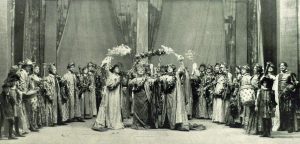
Marion, Kate and Ellen Terry (centre), surrounded by other members of the Terry theatrical dynasty at Ellen’s Jubilee matinée, Drury Lane, 12 June 1906
More about Ellen Terry:
- British Heritage Travel’s feature on Ellen Terry
- Ellen Terry’s home, Smallhythe Place, now houses her theatrical collection and The Barn Theatre performance space. Her daughter, Edy, opened the home to the public shortly after Ellen’s death as a memorial to her mother. Edy converted a barn on the property into a theatre where performances of Shakespeare are given annually to honor Ellen’s birthday. In 1947, Edy convinced a number of theatrical luminaries to perform and mark the 100th anniversary of her birth, including Ellen’s great-nephew John Gielgud, Edith Evans, and BADA’s first Patron Peggy Ashcroft.
- Ellen’s performance of Portia inspired Oscar Wilde to write a sonnet in her honor, which he sent to her with the message: “No actress has ever affected me as you have. I do not think you will ever have a more sincere an impassioned admirer than I am.”:
Portia (To Ellen Terry)
I marvel not Bassanio was so bold
To peril all he had upon the lead,
Or that proud Aragon bent low his head
Or that Morocco’s fiery heart grew cold:
For in that gorgeous dress of beaten gold
Which is more golden than the golden sun
No woman Veronese looked upon
Was half so fair as thou whom I behold.
Yet fairer when with wisdom as your shield
The sober-suited lawyer’s gown you donned,
And would not let the laws of Venice yield
Antonio’s heart to that accursed Jew –
O Portia! take my heart: it is thy due:
I think I will not quarrel with the Bond. - While in the US in the early 1910s, Ellen was hired by the Victor Talking Machine Company to record some of Shakespeare’s speeches, recordings of which are still around to this day. Many of the recordings are available here. Click here for a cleaned-up recording of Ellen Terry reciting “The Quality of Mercy”
- Modern theatre critics continue to find insight and relevance in Ellen’s “Four Lectures” and her analysis to Shakespeare’s work.
Header Photo: Ellen Terry as Portia (c. 1883)
The Tradition of Aldridge
 In honor of Black History Month, we’re highlighting the life of Ira Aldridge (1807 – 1867), the 19th century Black American actor who rose to fame playing Shakespearean roles on the British stage and had an acclaimed career in Europe, breaking barriers and becoming one of the highest paid actors of his day.
In honor of Black History Month, we’re highlighting the life of Ira Aldridge (1807 – 1867), the 19th century Black American actor who rose to fame playing Shakespearean roles on the British stage and had an acclaimed career in Europe, breaking barriers and becoming one of the highest paid actors of his day.
Born to a lay minister and his wife in New York City in 1807, Aldridge made his stage debut in New York at the African Grove Theatre in Greenwich Village around 1821. Finding his options and opportunities limited in the United States, he left for England in 1824, taking work as an assistant to a London producer and actor. He made his London stage debut in 1825 (at the age of 17) in a production of Othello, becoming the first Black actor to play the title role in Britain. Critics noted of his performance that “his death was certainly one of the finest physical representations of bodily anguish we ever witnessed.”
Despite his popularity with audiences, his London career was derailed by racism and bias as critics began to pillory his performances, openly calling for him to be removed from the stage. Forsaking London for a time, Aldridge launched a tour of theatres around the country. This tour proved to be massively popular and successful and Aldridge eventually expanded to tour Ireland and Scotland as well.
Not content to limit himself just to the traditional Black roles in Shakespeare, his repertoire expanded to include a range of contemporary plays, devised solo pieces, and the title roles in Macbeth, King Lear, and Richard III. He also adapted and starred in a version of Titus Andronicus that restructured the story to focus on Aaron the Moor as the hero.
Aldridge began touring Europe in the 1850s to great acclaim and is credited as the first actor to perform Shakespeare in English in Poland and other countries in Eastern Europe. In his late fifties, he began to plan a homecoming tour of the United States with more than 100 stops but he fell sick and died in Poland shortly before the tour was due to begin.
His impressive legacy includes not only his acting work, his array of ‘firsts’ (including that he was the first Black man to manage a British theatre when he was named manager of the Coventry Theatre in 1828), his acclamations and honors from heads of state across Europe, but also his impact on and direct line to ensuing generations of actors: Paul Robeson trained with Aldridge’s younger daughter, a voice teacher and opera singer, while preparing to play Othello in Stratford in 1959. Robeson was the second Black actor to take on the title role in Stratford, playing the Moor of Venice almost 110 years after Aldridge first played the part at the Royal Shakespearean Theatre at Chapel Lane. Robeson acknowledged his debts in a note to her: “To Miss Aldridge – With many thanks for the fresh inspiration received from all the reports of her father’s greatness. I realize that I can only carry on in the ‘tradition of Aldridge’.”
For more on the incredible life and career of Ira Aldridge, visit:
Shakespeare Birthplace Trust: The Legacy of Ira Aldridge
Shakespeare Birthplace Trust: Ira Aldridge Collection
Folger Shakespeare Library: Ira Aldridge Takes the Stage
BBC: First black Shakespearean actor Ira Aldridge honoured
MentalFloss: Ira Aldridge: The Black Shakespearean Actor Who Broke Theater’s Color Barrier
Photo: Ira Aldridge as Aaron in Titus Andronicus From a daguerreotype by William Paine of Islington. Printed by The London Printing and Publishing Company., Public domain, via Wikimedia Commons
Hal Holbrook (1925 – 2021)
We are deeply saddened to learn today of the recent passing of Hal Holbrook. An Honorary Board Member of the American Friends of BADA, Hal’s career on screen and stage spanned more than 60 years. He was repeatedly recognized for his work with major nominations and awards, including an Oscar nomination, 10 Emmy nominations (with 4 wins), a Tony Award, and a Drama Desk award.
He is perhaps best known for his portrayal of Mark Twain. He began working on the concept in college in 1947, eventually premiering the one-man play “Mark Twain Tonight!” in 1954. He would continue to play Twain on stage for more than six decades, only retiring in 2017.
Our deepest condolences to his daughter Eve (LTP ’90) and the entire Holbrook family.
Read the New York Times obituary of Hal Holbrook.
Header Image: Left – Kingkongphoto & www.celebrity-photos.com from Laurel Maryland, USA, CC BY-SA 2.0, via Wikimedia Commons; Right – University of Houston, CC BY-SA 2.0, via Wikimedia Commons
Summer 2021 Program Dates
Announcing the dates for BADA’s Summer 2021 Programs:
Midsummer in Oxford Program (actors 18+)
9 July – 8 August
Midsummer Conservatory Program (actors aged 16 – 18)
17 July – 6 August
Applications open January 12 and are due March 1.
If you’d like to receive a notification when applications open, please sign up for our Programmes Announcements email list.
Announcing the Greek Theatre Program
The British American Drama Academy is pleased to announce the new course: Greek Theatre – From the Ancient World to the Modern, Through Theory and Performance.
The course, a four week summer intensive, explores the performance and the reception of ancient drama, taking participants from BADA’s classrooms and the theatres of London, to ancient sites in and around Athens, to Oxford University, immersing them in the scholarship of Greek Theatre in performance from the ancient world to the present day.
Participants will explore the interaction between text, performance and context, paying close attention to the cultural, social and political developments in Athens in the 5th Century BCE, combining theory and practice throughout.
Course highlights include:
- Retracing the route of the Panathenaic Festival in Athens
- Visiting the ancient sites of Delphi, Mycenae and Epidaurus
- Training with a leading actor from the National Theatre of Greece and a choreographer from Greece’s National Opera company
- Performing in Greece and among the statues of the Ashmolean Museum in Oxford
- Researching in the Archive of Performances of Greek & Roman Drama (APGRD) in Oxford, the pioneering international centre for research into performances of Greek and Roman drama worldwide, from antiquity to the present
Course Director Paul O’Mahony says “The course represents the perfect alignment of BADA’s rich tradition of training in London and Oxford, with the huge benefit of exposure to the sites of Ancient Greece. We have assembled an incredible itinerary, with access to academics and practitioners with compelling expertise in research, archiving and performance.”
BADA’s Dean, Eunice Roberts, adds “Participants will come away with a deep understanding of the culture and context in which Greek theatre developed and be able to draw connections from the ancient theatre, through Shakespeare and the Elizabethan theatre, to theatre and performance today.”
The course is open applicants at the undergraduate and graduate level as well as those who are not currently enrolled in educational programmes. Applicants aged 18 must have at least one year’s experience away from home to be considered for this course.
For full course details, 2021 dates, and deadlines, or to submit an application, visit our Greek Theatre page.
Remembering Chadwick Boseman
The British American Drama Academy family is deeply saddened by the news of Midsummer in Oxford alumnus (1998) Chadwick Boseman’s untimely passing.
Ian Wooldridge, BADA’s former Dean & Director, remembers working on sonnets and scenes from Romeo & Juliet with Chadwick in Oxford: “Chadwick was diligent, enthusiastic, with a great wit; generous and a joy to work with in the room. He was always smiling. He had a tremendous relationship with language and text. He knew how to use it and relish it. His body of work is immense for someone who was still so young. He was special.”
Since his starring role as Jackie Robinson in “42” in 2013, we have heard from actors auditioning for our programs about their deep admiration for Chadwick and how his thoughtful and moving performances influenced their work. Many have said that they were auditioning specifically to train at BADA so as to follow in his footsteps.
This has only increased in recent years and Chadwick’s enduring legacy will include not just his talent, his kindness, the people he embodied and the characters he brought to life, but also the next generation of talented actors whom he inspired.
BADA’s Trustees, Administration, and Faculty send our deepest condolences to Chadwick’s family, friends, and fans.
(Header Photo: Chadwick Boseman, center, from the 1998 Midsummer in Oxford program group photo. Inline photo: Chadwick Boseman and Heather McCuen at Balliol College, University of Oxford, during the 1998 Midsummer in Oxford Program; photo courtesy of Heather McCuen.)
A Statement from the Chair of BADA and the President of AFBADA
The wave of Black Lives Matter protests across the USA and the UK following the death of George Floyd at the hands of the Minneapolis police has once again put institutional racism in the spotlight. We, the BADA Board, publicly affirm our commitment to anti-racism and to equality for all our staff, faculty, students and alumni. Black Lives Matter. Racism and bigotry have no place in our society. We need to work together to dismantle the structures of racism.
We recognise the hurt caused by historic injustices and we acknowledge that, as an institution, despite our best intentions, we still have work to do to effect the structural and systemic changes needed to be truly inclusive and reflective of the society in which we live. We pledge to use this moment in history as an opportunity to implement fundamental change in our organisation and embrace diversity across all markers to challenge inequality – be it by race, gender, sexuality, disability, religion, age or class – and to do so in a manner that is both transparent and fully accountable.
This will take time and courage; deep-rooted change cannot happen overnight but this is the first step in that journey. We will listen to our community, examine our structures and systems, and take practical and targeted actions to address racism and all forms of inequality.
Specifically, and immediately, the Board commits to:
- Introduce mandatory diversity training, including unconscious bias training, for the Board, staff and faculty;
- Review our offer: what we teach, how we teach, who we teach;
- Develop an independent and transparent process for addressing grievances;
- Nurture a safe space for all students to be themselves in an open and supportive environment;
- Create an open space for ongoing discussion to ensure inclusion remains at the heart of all we do;
- Give the time and resources required to effect the necessary change.
This is just the beginning. As we progress on this journey, the Board will provide regular reports on progress towards our stated commitments and updates on new initiatives we develop to achieve this important and overdue change.
You Matter
BADA is totally committed to diversity and inclusion, only in that way can everyone’s story be embraced and reflected into the world.
Brian Cox, Patron of BADA
The British American Drama Academy is pleased to announce that Brian Cox, CBE is its new Patron. An Emmy, Lortel, Golden Globe and Olivier award-winning actor and director, Brian is a celebrated presence on stage and screen in both Great Britain and the United States and has been for more than five decades. His career spans theatre: King Lear and Richard III (Royal National Theatre), Rat in the Skull (Royal Court), Titus Andronicus (Royal Shakespeare Company), The Championship Season (Broadway), Rock ‘n’ Roll (Broadway), and Art (Broadway); film: Churchill, The Bourne Identity, X2: X-Men United, Adaptation, Rob Roy, and Braveheart; and television: Frasier, Nuremberg, and Deadwood.
In the past year alone, he starred as President Lyndon Johnson in The Great Society on Broadway, directed the UK premiere of Joshua Sobol’s Sinners, and can be seen as Logan Roy on HBO’s Succession, for which he won the 2020 Golden Globe for Best Performance by an Actor in a Television Series – Drama.
“We are thrilled to have Brian Cox join us as our new Patron.” says Eunice Roberts, Dean of BADA. “Not only is he an actor with a remarkable career on stage, in film, and on television, but he is also a thoughtful and insightful masterclass instructor, one whose guidance students continue to refer to years later.”
Brian has had a decades-long association with BADA, including directing several collaborations with the Moscow Art Theatre and holding regular Masterclasses for participants on BADA’s programs. He succeeds Sir Derek Jacobi, CBE, who has served as BADA’s Patron for more than two decades.
Brian Cox headshot by David Ho.
BADA’s response to COVID-19
The global pandemic of COVID-19 has brought tumultuous changes for all of us in ways that few could have imagined. For the safety of our students, faculty, and staff, BADA decided two weeks ago to suspend in-person instruction for the remainder of the semester and send our spring students home.
With everyone safely settled, the London Theatre Program is once again in full swing and our students are completing their final module online, working closely with the directors, faculty, and Dean. The first week of online instruction has just finished and we are immensely proud of how our students, directors, and voice and dramaturgy faculty have all pulled together to continue to make their BADA experience a rewarding one. While there are challenges to this new way of learning, we are excited to see our faculty and students already discovering new opportunities for creativity and expression.
BADA’s strength is our community and its collaborative celebration of rigorous training. As we continue our preparation for the resumption of on-site teaching, we know that both of these strengths will not only sustain us, but will also allow us to be creative together in new ways and to reach out and connect across physical distance. Over the next few weeks, we will be rolling out exciting new initiatives to connect and celebrate our community in these challenging times. Please keep an eye on our social media and blog for details.
We look forward to seeing you soon!
Announcing the Shakespeare in London Program!
The British American Drama Academy is pleased to announce the new Shakespeare in London Program!
The course, a semester abroad program for college Juniors and Seniors, focuses on Shakespeare’s plays, allowing students to take full advantage of the opportunity to live and study in the city where Shakespeare’s works were first performed at the Globe Theatre. Students will see a considerable number of these works in performance, at Shakespeare’s Globe, at other prominent London theatres, and also at Stratford-upon-Avon. While Shakespeare’s plays are studied principally in the classroom at BADA’s home overlooking Regents Park, they are also explored in performance both on stage and in the rehearsal room.
At the heart of the course lies the fruitful interaction between text, performance and context. The course also pays close attention to those cultural, social and political developments in England in the late C16th and early C17th that necessarily inform Shakespeare’s work.
This course will be taught by scholars working on Shakespeare and the work of his contemporaries and where appropriate by theatre practitioners in order to enable students to forge that crucial link between theory and practice as the course progresses.
A willingness to learn and an enthusiasm for the subject matter are the essential pre-requisites. Prior study of Shakespeare and Elizabethan theatre is not required.
| “We are very excited to launch BADA’s new undergraduate semester abroad program, Shakespeare in London, and to welcome our first group of students.
With its cross-disciplinary approach, the program is an ideal study abroad opportunity for students of English, Theatre, and other areas of study who love Shakespeare and want to discover more about the man, his plays, and his time, all while living and studying in the city that made him famous.” |

|
| “With its academic rigour, its close attention to cultural and historical context, and above all its keen interest in the continuing life of Shakespeare’s plays on the present-day stage, the program shares many priorities with The Shakespeare Institute – the world’s only university research department devoted entirely to the study of Shakespeare’s works, times, life and afterlives. Some time will be spent in Stratford-upon-Avon, visiting the Institute and studying the work of the Institute’s close theatrical colleagues, the Royal Shakespeare Company.“ |

Prof. Michael Dobson |
For full program details, visit the Shakespeare in London Program page.
Students interested in learning more about the Shakespeare in London Program and being notified when dates are announced should sign up for our email list.
Press: Paul Rudd (MIO ’93) interviewed by Jack Smart (SHX ’10)
Alum Jack Smart (SHX ’10), the Awards Editor for Backstage and the host of Backstage‘s In The Envelope: An Awards Podcast, recently interviewed alum Paul Rudd (MIO ’93) about his long and varied career. In addition to talking about the technical aspects of acting opposite himself in the recent Netflix series Living With Yourself, Paul and Jack discuss Paul’s theatrical work, the value of training, and his time at Balliol College on Midsummer in Oxford!
Highlights of the interview include:
“I loved it. I loved being in Oxford…. and being there working on [classical text and Jacobean drama] was incredible!”
“I think working on plays that are hundreds of years old and being in that setting, you feel a part of something that is huge…, much bigger than you, that has history, that has importance. And, in a way that makes people feel a little bit more sane and a little bit more a part of something that is noble and artistic and amazing.”
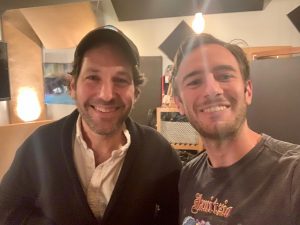
Find the full interview with Paul Rudd at Backstage or on your podcast player of choice.
Jack has also interviewed alums Da’Vine Joy Randolph (MIO ’09), Zoe Kazan (MIO ’02), and Brandon Victor Dixon (MIO ’98).
PRESS: Chadwick Boseman (MIO ’98) on The Graham Norton Show
Recently, alum Chadwick Boseman (MIO ’98) was on BBC One’s The Graham Norton Show to discuss his new film 21 Bridges. Graham asked Chadwick about the “mysterious benefactor” whose support allowed him to BADA’s Midsummer in Oxford Program, then at Balliol College. Watch the clip below to hear Chadwick talk about attending MIO and finally having an opportunity to express his gratitude in person at the Black Panther premiere last year.
Last year, Denzel Washington discussed his side of their encounter on the The Late Show with Stephen Colbert.
UK residents can watch the full episode on the BBC’s iPlayer.
US residents can watch the episode on BBC America on Friday, November 22 at 11:00 PM.
Photo: The Graham Norton Show, BBC One.
Ngozi Anyanwu (MIO ’03) talks to Christopher Cook
Ngozi Anyanwu decided that she wanted to be an actor when she was in eighth grade in high school in Pennsylvania. Fast forward to now, and she’s the accomplished actress she always wanted to be, and a successful playwright creating work out of her unique history as an Nigerian-American.
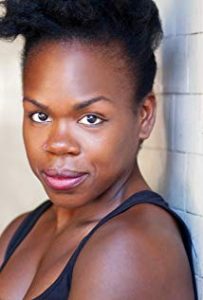
The Homecoming Queen tells the story of a 30-something Nigerian-American woman who returns to her ailing father’s African home and was an Off Broadway hit. Then there’s Good Grief, which according to one writer was “produced in a New York theatrical season featuring more writers of color and women than perhaps ever before.”
Ngozi’s parents were both born in Nigeria. “I feel like this is the subject of my next play! They met in college, in what was Trenton State University back then. I want to say it was early 70’s, late 60’s. You know, I think immigrants tend to stick together so there was actually a really strong Nigerian community in New Jersey. So, it’s not as uncommon as you would think for them to actually come across each other. But, it turns out they were actually from communities just twenty minutes away from each other in Nigeria. They were actually neighbours and didn’t know it!”
So as she was growing up did Ngozi Anyanwu feel American, African-American or Nigerian-American? “That’s interesting, because the majority of the work I’m trying to make examines this issue of identity.”
“Growing up you try to assimilate and be an American … like ‘I don’t want to be African, I’m just American’. I don’t want to sound different, I don’t want to look different, I don’t want to be different.” Then you become an artist and all you want to do is distinguish yourself from other people! All you want to do is show how different you are and how much you’re not like everyone else. So I realised as I got older how Nigerian my parents really did bring me up to be even though I grew up in a predominantly white suburb outside of Philadelphia. I’d go outside the house it was white America, I come inside my house it would be Nigeria. And also I’m black: there’s no debate about it because of the way I look, and my parents also were very aware of that as well. But I feel like I’m bi-cultural. I have multiple identities here. I don’t mind them. I love all of them. I embrace all of them. But there are parts of me which are like ‘You’re a Nigerian’ ‘You’re black’ ‘You’re American’, very much a woman, I take them all on.”
Ngozi first heard about BADA when she was an undergraduate in Pittsburgh. She auditioned for the MIO and was offered a place. “The Midsummer in Oxford program felt like the best fit, a summer regime and then I could go back to school in the fall. I’d not been out the country since I was 13. So I was like ‘Oh I’m somewhere else’. That was the first thing. But I was like ‘Oh what a beautiful place to study’ and it felt very open but also felt very serious. So, I was very excited.”
Ngozi was enrolled in a US undergraduate theatre program and one of her strongest memories is of the differences that marked out her fellow students in Oxford. “I felt like we had different levels, for example there were people who were in conservatory programs …And there were also different ages… a couple of actors who were actually in their late thirties, and I was 19 I believe at the time. I was kind of excited about the fact there were people sort of at these different levels in their artistic journey in the program.”
Back then there were fewer persons of colour on the program than now. “I could count them on one hand; maybe five black students, and maybe one Latino student. Perhaps 6 or 7 in the whole program. But I was very familiar with that … Because of my upbringing, I was used to being one of the few students of colour. But it did also fuel a need to kind of fight for the students of colour when I went back to my undergraduate course which was predominantly white. What I found in Oxford was that the students of colour who I encountered were very much about sticking together so I became a little bit more aware what a problem it is to actually be one of the few.”
However, once the Oxford classes were underway it was the work as much as her fellow students that demanded her attention.” I think what stayed with me was the focus … those four weeks gave me an intense focus and concentration on just living, eating, breathing theatre. So when I came back to being an undergrad, I felt … almost like invincible because it gave me a really intense source of discipline.”
She remembers Ian Wooldridge’s classes in which she worked on Pinter and Lorca. “He made me look at playwrights in a different way: you look at the whole of their lives as well as what they wrote.” And Jackie Snow’s movement classes. “They were really great, and made us very open and very unafraid of our bodies; unafraid of putting our bodies near each other.”
As an undergraduate Ngozi was uncertain about how her career might develop, but she used part of her time at Oxford work with text. “At that time I was reading a lot of Sarah Kane stuff, so I got students together and we’d kind of cut and paste Sarah Kane stuff. It was a place where I was kind of like ‘Oh we can do anything here’.
Now writing for her always begins with acting. “I’m still an actor … I think more writers should take acting classes and really get into why, if you’re making an actor do this, or if you’re making an actor say this, it really has to come from their whole being, so you really should be writing from that standpoint. You should really be writing from how it feels for an actor to say these words and do these actions, so I feel like every writer should take an acting class … Every single playwright, to really know what they’re putting their actors through!”
If Ngozi ‘s play Good Grief benefits from her experience as an actor it’s also draws on her own experience as a Nigerian-American. “It takes place between 1995 and 2005, and you meet this young Nigerian-American girl and her best friend. You meet her the day that she lost her best friend and it takes you through the life of her growing up and meeting this boy that sort of becomes her best friend and first love and all the people in her life that try to help her get over his death.”
“I feel like what I’m trying to write about things that I’m struggling with personally and I can make them as personal and as honest as possible. But I feel like even though they’re really specific to me, people will see themselves within that. You may not have to be a Nigerian-American girl but everyone goes through loss, everybody feels like a fish out water, everyone’s fallen in love, everyone’s lost love I think. I’m at the stage now where I only know how to write what I know. I don’t have the amazing imagination yet of being able to write outside of my experience, and I like my experience. I think it’s a story worth telling. And I don’t think it’s a story that gets told a lot. So I’m ok right now to dig around at my own psyche and struggles, and share that with people.”
One of the actors in Good Grief and before that The Homecoming Queen was a fellow BADA Alum Oberon Adjepong. Is there something special about BADA trained actors? “They are such beautiful, well trained people. People can say what they want about training but there is a certain amount of discipline and a certain amount of work ethic that they’re used to. And so there’s very little to worry about their rehearsal process; they’ll be someone who’s been put through a lot of rigour.”
Ngozi was recently featured on Mailchimp’s “Outer Monologue” series, which explores the narratives running through creative minds. You can listen to Ngozi talk about acting, Good Grief, and more.
BADA’s “Kings & Queens” Cabaret!
On Thursday, October 10, 2019, American Friends of BADA President and BADA Trustee Lydia Carlston (MIO ’01) hosted BADA’s Kings & Queens Cabaret at the historic Duplex Caberet Theatre in New York City! BADA alumni, family, and supporters gathered to enjoy the festive evening of songs to raise money for the BADA Scholarship Fund.
The evening’s performers included:
Aria Nadège & Friends
Christy Coco (LTP ’16)
Shelby Turner Phillips (MIO ’17)
Faculty member Peter Francis James
and special guest Brandon Victor Dixon (MIO ’98)
Jennifer Steil (LTP ’89) in conversation with Christopher Cook
Jennifer Steil has crammed more lives into her suitcase than most of us can dream of packing. She trained in theatre, worked as a journalist in Yemen, and spent four years writing a novel in Bolivia. Now living in London, she is a much-admired writer whose novels include The Woman Who Fell From The Sky and The Ambassador’s Wife, which was optioned to become a TV series starring Anne Hathaway. Jennifer signed up for the London Theatre Program at BADA as an undergraduate in 1989. Her new novel, [title to be confirmed soon], will be published by Viking in April 2020.
JS: I was a theatre major at Oberlin College and I 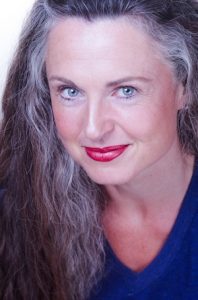 wanted to experience life in a different country while continuing to study what I love. The idea of studying nothing but theatre in London, a capital of the theatre world … sounded like an exciting opportunity, …given that I had high hopes of becoming a star of the stage and screen!
wanted to experience life in a different country while continuing to study what I love. The idea of studying nothing but theatre in London, a capital of the theatre world … sounded like an exciting opportunity, …given that I had high hopes of becoming a star of the stage and screen!
CC: Was there something about BADA that was particularly appealing? There were other programs at that time, though perhaps not as many as there are now.
JS: I was excited that BADA allowed me to study theatre from so many different perspectives. I could study theatre history and criticism, I could study different kinds of acting with different kinds of teachers. I could do performances but also watch a lot of theatre and take movement. It offered such a variety of theatre classes.
CC: Who taught you?
JS: Bill Homewood taught me acting and he [has] stayed in my mind not only because he was an absolutely brilliant teacher, but also because he was an extraordinary director. He ended up directing me in Arthur Schnitzler’s La Ronde. It turns out that now, 30 years later or however long it’s been, he’s one of our neighbours in France, which is where our permanent home is. So, I still see him often and he’s still a great mentor, and now, more of a peer, in my life. As is his wife, RSC actress Estelle Kohler.
Another teacher I remember is Ben Benison. Ben was hilarious; he would always walk around singing “Ben Benison, Ben Benison, the actor to watch.” I still remember the tune. And he was great at Movement; he did fun things with bodies. I also learned a lot about how much could be found in every single page of text. With Bill and another teacher we rehearsed a lot of Shakespeare and a lot of Ben Jonson.
CC: Looking back what do you think it meant for you as a theatre major to be traveling abroad for the first time?
 JS: I learned a lot of things that aren’t necessarily all connected to theatre. I learned how to live in a flat with five other people. Some of them are still close friends — I’m in touch with four of them. I formed extraordinarily strong friendships because it was a significant time in all of our lives and we were all at really tricky crossroads. The bonds I formed with my fellow actors were profound and remain important to me. It also gave me confidence to learn my way around London and the theatre world there.
JS: I learned a lot of things that aren’t necessarily all connected to theatre. I learned how to live in a flat with five other people. Some of them are still close friends — I’m in touch with four of them. I formed extraordinarily strong friendships because it was a significant time in all of our lives and we were all at really tricky crossroads. The bonds I formed with my fellow actors were profound and remain important to me. It also gave me confidence to learn my way around London and the theatre world there.
I think I got a much deeper education in textual analysis and theatrical criticism than I had been getting in the US. I never had to think about anything other than theatre. It was the first time in my life that I had the luxury to only focus on what I loved doing whereas when I was in university I also studied science and French and other things. I also had the luxury of seeing four or five plays a week – what could be better than that! It was an incredible learning experience, seeing all the different kinds of theatre available at the time and all the different performances, and then talking about them with my flatmates because all we ever talked about was theatre for the most part, and that’s pretty exciting.
CC: When you left BADA, but more importantly when you graduated from Oberlin, had you every intention of being an actor?
JS: Yes, and I worked as an actor for many years. I think at the time I was still intimidated by New York, so I moved to Seattle and worked as an actor there for four years. But I got frustrated with the kinds of roles I was cast in. I was always either the ingénue or the prostitute with a heart of gold. It got very boring that I was never allowed to play anyone with a brain. I was frustrated with the roles that were available to women at the time and I think that’s still a problem in the theatre although it’s changing very slowly. Female playwrights also get produced so much less often than male playwrights in general. I have to mention that Stefanie Zadravec, one of my flatmates in London during my time at BADA, has become a brilliant and accomplished playwright. She is doing very exciting things. Michelle Cohen, another flatmate, is also doing incredible work as a producer, singer, and writer. They still inspire me.
So then I moved to the east coast and out of frustration with the female roles available I started writing because  the characters I played weren’t saying anything interesting and there were all these things I wanted to say to the world. So, I began writing. I realised I hadn’t actually taken any creative writing courses so I took a few and then applied to grad school thinking, well I can be in grad school and perform at the same time.
the characters I played weren’t saying anything interesting and there were all these things I wanted to say to the world. So, I began writing. I realised I hadn’t actually taken any creative writing courses so I took a few and then applied to grad school thinking, well I can be in grad school and perform at the same time.
When I finished up my MFA I thought ‘Gosh, I have a BA in Theatre and a MFA in Creative Writing — I’m going to be waitressing for the rest of my life’. Not that there’s anything wrong with that. So I went and got an MS degree in Journalism from Columbia because I thought ‘Journalists get regular pay checks,’ which I’d never had.
When I was finished at Columbia and got a job in newspapers I realised very quickly that you can’t be a journalist in newspapers with daily deadlines and also commit to a rehearsal schedule. So I was in newspapers for only a couple of years and then I couldn’t stand being without theatre any more so I went back to performing. In order to do that I took a job with a magazine, basically writing soft porn for Playgirl magazine. I took the job because I could leave the office at five every day and go to work with this downtown lesbian theatre company.
Actually it was the rehearsals I missed more than the performing. It’s that process of discovering and working with a group of people, collaborative work that you don’t get as a novelist until you’re working with an editor. And I worked in New York in small theatres until I moved to Yemen in 2006.
CC: How did that come about? That’s a really extraordinary move, from New York City to Yemen!
JS: Yes. I was writing for a different magazine by then. I was working for The Week, writing news. Again, I was dissatisfied because I couldn’t do any creative writing because by the time I got home I was just tired from sitting and writing all day and again there was only certain kind of theatre I could rehearse for in the evening.
Then my high school sweetheart wrote to me and said, ‘Would you come to Yemen and train the journalists here? They don’t know what they’re doing.’ I knew nothing about Yemen at the time; I’d never been to the Middle East. “I have a job”, I said. ‘I have an apartment in Manhattan. I’ve got stuff, I can’t just run off to Yemen, but I’ve got three weeks holiday left, so I could come for three weeks and do a training course. Would that be useful?’ So he said ‘Sure’, and, I flew to Yemen and taught a training course to the staff of the Yemen Observer Newspaper, which my ex-boyfriend had done a little bit of writing for and I fell in love with my reporters. They were ambitious, eager, hospitable, warm, and they were just desperate to learn things. I thought ‘God, “I never see anyone that desperate to learn things in the US.”
However, three weeks wasn’t enough. These reporters had no training at all as journalists, so I had to start from the very beginning. But there’s only so much you can achieve in three weeks. I was just beginning to help them think about what journalism really is and how to approach a story and what objective journalism is …. They’d never heard of journalism that told both sides of a story, trying to find balance, These were foreign concepts. So after three weeks the owner of the newspaper who was Yemeni asked if I would stay on as editor-in-chief for a year and I said ‘Well…I don’t know… what are you going to pay me?’ and he said ‘I’ll pay you $12,000 a year’ and I said ‘I made more than that in New York’, and he said ‘Yes, but you don’t need more than that here.’ Which was true. It’s not a materialistic society, which was a relief in some ways but it’s partly a result of the dire poverty of the country.
CC: Had you started writing fiction while you were there?
JS: No, I’d been writing fiction for years privately. I’d been granted a residency in Costa Rica and actually written a novel, but it was a typical first novel in that although parts of it were well written, I didn’t quite have a feel for narrative structure. I’ve used parts of it in other things.
CC: Do you feel there’s a link between writing novels like The Woman Who Fell From The Sky or The Ambassadors Wife and your training in theatre?
JS: There are many links, not least in the development of character. A lot of the things that you think about when you’re developing a character that you’re going to perform and you come up with certain bits of back story that aren’t in the play but things that you know about them, their physical quirks, how’d they’d react in any situation means you have to have that same inside-out knowledge of character as when you’re writing a novel. It’s the same with motivation. In theatre you need to know ‘what’s their motivation in this scene’ and you have to do that as a writer as well … I have a new book coming out next year, and I’m writing a fourth book at the moment for my PhD. So far it is mostly dialogue and the more I write, the more I’m convinced that dialogue is actually what I do best and that might come from spending a large part of my life in the theatre, which is of course all dialogue. The book is probably going to come out April 2020 but we don’t have a name for it … It’s a novel about Jewish refugees in Bolivia, Austrian musicians in who are refugees in Bolivia in 1939.
CC: Do you think your feel for dialogue came out of the time that you studied English theatre here in London?
JS: That’s an interesting thought. I think I’d have to ponder that more. … But, I’m sure that studying text as closely as I did gave me a really clear sense of how each word contributes to the meaning of a scene. And how each detail contributes to the meaning a scene.
Want to be notified when Jennifer’s new book is published? Sign up for her mailing list!
New Trustees Appointed
In 2018, BADA implemented a long-planned restructuring of its governance designed to bring the Academy’s oversight into line with modern practices and to ensure that the Academy is well positioned to continue to offer unparalleled classical theatre training. As a result of the restructuring, the serving Board of Governors retired. Four of their number were appointed to serve as Trustees going forward and several new Trustees were recruited and recently began their terms of service to BADA.
Following the initial restructuring, the Trustees were:
Marcus Boyle (Chair)
Louise Chantal
Christopher Cook
Diane Gelon
Maggie Whitlum (Vice Chair)
In April 2019, three new Trustees were appointed following an extensive search for professionals with expertise in governance, international education, and other relevant areas:
Topher Campbell – his 20+ year career spans broadcasting, theatre, performance, writing, experimental film and site-specific work
Ruth Hogarth – an independent arts and culture consultant with a background in theatre, international broadcasting and higher education
Melanie Whittaker – a senior program officer in German Marshall Fund of the United States’ Berlin office, with expertise in fundraising, leadership assessment, diversity and inclusion, public diplomacy, transatlantic relations, and German politics
BADA is incredibly grateful to the retired Governors for their years of work and dedication to helping BADA grow into the leading training institution it is today. These Governors have agreed to continue to serve and support BADA as members of the newly-formed BADA Council:
Margot Harley
Patti Boulaye OBE
Deirdre Simpson
Simon Stokes
Penny Wesson
To learn more about our newly appointed Trustees, please visit the new page on our website.
Carolyn Sands, Co-Founder, Retires
On Sunday, October 28, family, friends, and faculty gathered at Gloucester Gate to celebrate BADA’s Co-Founder and long-time Associate Director, Carolyn Sands, as she stepped down from regular duties at BADA, after 35 years.
Managing Director Tim Denham spoke about Carolyn’s time at BADA and her generous spirit, which the Academy will strive to embody. An excerpt of his remarks is below:
The brainchild of Carolyn and Tony Branch, some of you here will remember that the combination of Tony’s drive and vision and Carolyn’s moderating influence kept BADA afloat and thriving, through the years when it was trying to get established.
Anyone who has been on a BADA program in its 35 years will have had the privilege of knowing Carolyn. Many students have had personal experience of her endless capacity for caring, when needing medical attention and protracted visits to hospitals.
She has a generosity of spirit, in abundance which has inspired teachers, governors, staff and students over the years. BADA is felt by many students and their parents to be a family. This is very much down to Carolyn’s influence.
Now she has decided to step down from her day to day duties, she has earned a good rest. Not very likely, I know. She has family and other pursuits to keep her busy!
We will miss her hugely but happily she will continue to pop in and to help us in several ways.
Carolyn. You’ve been a huge part of our lives for so long. Long may it continue!
Some photos from Carolyn’s 35 years with BADA:
If you would like to honor Carolyn in her retirement, she has asked that donations be made to the Actors’ Children’s Trust, which you may do here.
Here’s what a few of the recent donors to the Trust had to say about Carolyn’s impact:
She is so much the spirit of BADA and her kindness and wisdom will continue to inspire us.
Nobody has been more caring of teachers, students and all in our theatre community. Thank you Carolyn.
Dear Carolyn , you are a very special lady . You have my admiration my best wishes and love.
An Evening with Justin Theroux (BCP ’91)
American Friends of BADA President Lydia Carlston (MIO ’01) welcomed BADA friends, supporters, faculty, and alumni to an intimate evening in her home for a festive cocktail party featuring a conversation with alumnus Justin Theroux (BCP ’91). Justin chatted with Dean Eunice Roberts about his training and education; his acting work, including his recent work on Netflix’s Maniac; and his work behind the scenes as a producer and screenwriter of films such as Tropic Thunder and Iron Man 2.
Photo Credit: Carl L Smith for Grindkings Photography
PRESS: Denzel Washington discusses Chadwick Boseman
Denzel Washington chats with Stephen Colbert about having provided a scholarship for Chadwick Boseman (MIO ’98) to attend our Midsummer in Oxford Program. Chadwick was part of a group of ten students from Howard University who attended MIO with the support of Phylicia Rashad, Denzel Washington, and other donors. That summer solidified our relationship with Howard University that was originally established by the legendary Howard Theater Professor Henrietta Edmonds.
This relationship continues to this day as twelve students from Howard are currently attending the Midsummer in Oxford program!
Alumni who Write… Jack Smart (SHX ’10)
Jack Smart (SHX ’10) is the Awards Editor for Backstage Magazine. He’s written there for four years now covering everything from the Tonys to the Oscars and the Emmys and the SAG awards — contributing features on award winners and other actors and artists in the public eye. He hosts and produces “In the Envelope,” Backstage’s interview podcast.
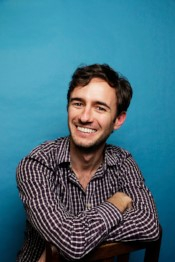 CC: Do you choose what you are going to write about?
CC: Do you choose what you are going to write about?
JS: “For the most part… especially if it relates to awards but I have the freedom to cover other stuff that’s not necessarily awards related. I can interview stars… or occasionally write features or news pieces. I’ve been at Backstage now for three years and so I do have the freedom to pick what I get to write about or cover sometimes.
“As far as the Tonys are concerned I try to see every Broadway show of the season and while it’s really hard to keep up with the amount of TV for the Emmys, it’s good to get a sense of which performances are in the running. And the same for the film award season, there’s plenty of films to see but that’s kind of one of the perks of the job, I get to watch all of those wonderful pieces of art.”
CC: What’s your day like?
JS: “On any given day I’m answering a lot of emails, coordinating logistics. I also do a lot of editing of other people’s features, interviews and news too, as well as writing my own. Occasionally I’m dashing off to do in person interviews for the podcast that I run… called ‘In the Envelope’. It’s an interview podcast where we interview awards contenders, usually actors, from film and because Backstage is the actors trade publication…our interviews on ‘In the Envelope’ are all centred on the craft and business of acting.”
“I think the reason the actors I interview really open up and enjoy the podcast is because I’m not there asking about their personal lives, unless of course it’s relevant to their most recent role…or to the work that they’ve dedicated their lives to.”
CC: So you manage to entirely side step the vexed question of celebrity?
JS:“Ah, yeah, unless it’s relevant. I ask a lot of questions about ‘advice’. Backstage is very much interested in catering to working actors but mostly early career artists and any advice people have in terms of how to navigate the industry or how to navigate specifically the craft are welcome.
Occasionally, it will cross over into celebrity. For example yesterday, I interviewed Noah Schnapp who is one of the ‘kid-stars’ in Stranger Things (Netflix) and he had plenty to say about how to navigate fame as a child actor, as a thirteen-year-old kid who is really well known. But I’m not there to ask them what they’re wearing or who they are dating.
CC: How easy is it to get people to talk to you?
JS: “It’s definitely difficult sometimes, and it depends on the person. Often if they are promoting a project they like to do an interview that’s pegged to the project in order to just get eyeballs on it, that’s a good way to target some people. Sometimes they come to me. As the podcast has grown, more and more publicists are coming to me but sometimes there are fifty-five people to go through first before you can actually sit down with the person. We also try to do in person interviews which makes things difficult from a logistical stand point, …but I think it makes the quality of the interview that much better.”
“The podcast has been really interesting. I’d done plenty of interviews as an editor at Backstage and many of those are turned into cover stories…I considered myself to have a lot of experience as an interviewer and to be quite good at it, but it’s an entirely different ballgame when you realise there are other people listening to it. I know it’s not live but everything you say and everything the person says is there and while it can be edited out but for the most part you’re speaking to an invisible audience, and that requires a completely different set of skills as an interviewer.”
CC: How much editing do you allow yourself to do?
JS: “Tidying happens in each episode. However, the cool thing -and maybe this is just a sign of how the podcast is going and also my growing skills as an interviewer, -is that the heavy editing and cutting and trimming and rearranging happened a lot more at the beginning of the launch of this project. Now we kind of know which questions work, and I think that in the last several episodes we’re not going to be cutting much out at all because these guests have really opened up and given us some great material.”
CC: As you’ve been working, either in print or online, has your attitude toward the idea of performance, towards the skills and the crafts of the actor changed?
JS: “That’s a good question. It’s definitely safe to say that I know more about acting three and half years into this job than I did at the beginning, and I guess there are some days when I feel I have it down to a science. So that if you asked me to sit down and write a book about how to be successful actor, I could do it now. But then there are other days when I think, I can’t explain why that performance resonates with me or why that performance is great and why that isn’t.”
“Maybe it’s just an overload of information. I’ve asked so many people what great acting is, that it’s all muddled, but I like to think that because I’m taking in so much film, theatre and TV, that my instincts of what is good have been honed, in this job. So when people ask me if I’m a critic and I say that technically I am not, but in terms of developing your taste, developing what you know to be good and what isn’t, those are the critical muscles that I work in this job.”
CC: Can you imagine doing anything else, other than what you’re doing at the moment?
JS:“It’s something I think about pretty often. I sometimes compare my job to other jobs in the arts journalism world and I think because I get to cover film, theatre and TV, that’s the biggest and best asset of my job. In terms of other career paths, I’ve thought about what would it be like to be a biographer of great artists and what would it be like to pursue audio journalism full time and to be a podcaster or a real radio journalist, which I suppose might involve more of a documentary world. I have also contemplated the creative writing side of things. I’ve written some plays and I really want to write a novel at some point. These are the things that I day dream about!”
June 2018 Newsletter
In this issue of the BADA Newsletter: an interview with theatre critic and Faculty member Sarah Hemming; a conversation with alum Jack Smart (SHX ’10), the Awards Editor for Backstage Magazine; a round of 20 questions to get to know new staff member Maya Celano; photos from the Spring 2018 London Theatre Program productions.
Farewell, John Barton
We are deeply saddened to learn of the death of John Barton yesterday. A BADA Associate Artist and long-time Masterclass instructor, John shared his love for and understanding of Shakespeare’s texts, particularly the Sonnets, with our students for more than two decades. A co-founder of the Royal Shakespeare Company, John trained and directed many of the modern masters of Shakespeare performance; his legacy, his influence on our understanding of Shakespeare, and his impact on the acting profession are immense.
Read the New York Times‘ obituary of John here.
Photo: John Barton leads a Masterclass in Sonnets at Midsummer in Oxford with guests Harriet Walter and Jane Lapotaire.
Remembering Oleg Tabakov
Faculty member Irina Brown has shared with us the sad news that former Faculty member Oleg Tabakov passed away in Moscow yesterday. Oleg had a long history with BADA, first teaching on Midsummer in Oxford at Balliol College in 1988. Oleg was a guest of honour at the 1988 Open Day Dinner, along with BADA Patron Peggy Ashcroft, where he gave a moving and memorable speech about Russia and Glasnost. During that summer, Oleg met Brian Cox and invited him to direct “The Crucible” at the Moscow Arts Theatre School, where he was the (much-loved) Director.
After Midsummer in Oxford, BADA brought Oleg to New York for the Midsummer with Moscow Program, where students studied Chekhov with Oleg and Shakespeare with Rosemary Harris. In September of 1988, students from Moscow Arts came to London to work with Brian Cox and Deborah Warner. A fundraising gala was held at the Barbican with leading British and Russian actors, and the Moscow Arts students performed. Oleg himself gave a wonderful performance as Malvolio.
In the Fall of 1989, Moscow Arts Theatre School and BADA brought the production of “The Crucible” to the Assembly Rooms as part of the Edinburgh Festival; the production then transferred to Riverside Studios in London, where Prince Edward was the guest of honour on opening night.
Among his many accomplishments, Oleg was named a “People’s Artist of the USSR” in 1988 and served as the Artistic Director of the Moscow Art Theater for almost 20 years.
Oleg Tabakov was an inspiring, charismatic and unforgettable person. He was a wonderful Director and Teacher and will be greatly missed.
Read the New York Times obituary of Oleg: Oleg Tabakov, Revered Russian Actor and Teacher, Is Dead at 82
Photo: Alec Guinness and Oleg Tabakov at Balliol College during Midsummer in Oxford 1988
BADA Writers: Gerit Quealy (MIO ’94)
Christopher Cook in conversation with alum and author Gerit Quealy.
Gerit Quealy is one of a handful of BADA alumi who’s a writer and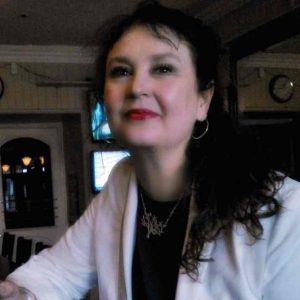 scholar as well as a performer. Her book Botantical Shakespeare: An Illustrated Compendium of all the Flowers, Fruits, Herbs, Trees Seeds and Grasses cited by the World’s Greatest Playwright (Harper Collins) is just that: a survey of the one hundred and seventy plants that we meet in Shakespeare’s work, and each one is given a handsome ‘face’ by the artist Sumie Hasegawa Collins.
scholar as well as a performer. Her book Botantical Shakespeare: An Illustrated Compendium of all the Flowers, Fruits, Herbs, Trees Seeds and Grasses cited by the World’s Greatest Playwright (Harper Collins) is just that: a survey of the one hundred and seventy plants that we meet in Shakespeare’s work, and each one is given a handsome ‘face’ by the artist Sumie Hasegawa Collins.
“So we grew together,
Like to a double cherry, seeming parted,
But yet an union in partition,
Two lovely berries moulded on one stem.”
A Midsummer Night’s Dream
But what happened if the images didn’t exactly match the text? Back to the drawing board says Quealy “For instance, Sumie’s cherries were beautiful, the branches, the flowers … but Shakespeare primarily talked about the cherry red and the colour of … cherry lips and Thisbe says ‘a cherry nose’ in Midsummer Night’s Dream Then Helena and Hermia have that lovely thing that their friendship [being] like two cherries on a single stem. So I said I have to have two cherries on a single stem.”
I t’s vital to pay proper attention to Shakespeare’s language Gerit Quealy says. “This is actually where BADA comes in …Fiona Shaw,… was one of my teachers on MIO and she was once saying something to my roommate about ‘my father’s a King, my father’s a King’ and how important that was. It wasn’t just like my father was anything, he’s theking. This got me thinking about the importance of each word …unfortunately… many actors don’t look up individual words because there’s this assumption that we know them already. Particularly words that we still use in everyday life.”
t’s vital to pay proper attention to Shakespeare’s language Gerit Quealy says. “This is actually where BADA comes in …Fiona Shaw,… was one of my teachers on MIO and she was once saying something to my roommate about ‘my father’s a King, my father’s a King’ and how important that was. It wasn’t just like my father was anything, he’s theking. This got me thinking about the importance of each word …unfortunately… many actors don’t look up individual words because there’s this assumption that we know them already. Particularly words that we still use in everyday life.”
The hapless Medlar, we learn from Quealy’s researches, was the rude fruit of the sixteenth century. The French called it cul de chien. In England, joking about the ‘open arse’ fruit was well-known, which makes Mercutio’s remarks about Romeo in the Capulet’s Orchard startlingly suggestive.”
 “If love be blind, love cannot hit the mark.
“If love be blind, love cannot hit the mark.
Now will he sit under a medlar tree
And wish his mistress were that kind of fruit
As maids call medlars when they laugh alone”
Romeo and Juliet
“I had a friend of mine working with me on the book initially”, Gerit Quealy tells me, “ and I talked to her about the ‘medlar’ and she said ‘oh I just thought it was a meddling person.’ And I said ‘well yes and he uses that pun in several of the mentions but it’s also this very specific fruit that’s very specific to the line and if you don’t know what it looks like you’re not going to understand what you’re talking about.”
“One of the fascinating things in the book is where he uses different plants and which characters speak about them; I think there’s 47 of them that are only mentioned one time and then there’s ones that have a lot of mentions, show up in a lot of different plays or cluster all in one play.” Roses for example. And always they are earthy, earthbound and everyday images as if Shakespeare has been peering into his neighbour’s garden .
“No more be grieved at that which thou hast done:
Roses have thorns, and silver fountains mud;
Clouds and eclipses stain both moon and sun,
And loathsome canker lives in sweetest bud.”
Sonnet 35
“I noticed overall a kind of impetus to think about England as this garden. Certainly John of Gaunt mentions it [Richard II] and Perdita [The Winter’s Tale] too talks a lot about it. I think, there’s a very interesting point of view being asserted by Shakespeare about growth and growing things.” Moral and spiritual growth as well as natural growth perhaps, one of the great Shakespearean themes.
How Helen Mirren was coaxed into writing a foreword to Botanical Shakespeare, is another story! But she’s clearly a fan. “One of the things, that I learnt from Mirren’s Foreword … is that Shakespeare shouldn’t be taught from an academic point of view in schools, especially to young kids and that’s why BADA’s so great. You find your own way to the plays and the meanings”
“There’s rosemary, that’s for remembrance; pray,
love, remember: and there is pansies, that’s for thoughts.”
Hamlet
And what did Gerit Quealy learn from working on this compilation? “I felt quite intimately connected to Shakespeare … also I started actually planting things which is odd for me, I’m not that much of an outdoor girl but I have become one and my friend who’s an astrologer jokes with me that ‘you don’t have any earth in your chart so this is like forcing you to be more earthy’. So getting my hands dirty has taught me to look … and see Shakespeare all around me.“
Faculty Interview: Gareth Armstrong
Christopher Cook discusses solo performance with new BADA Faculty member Gareth Armstrong.
Gareth Armstrong joined the BADA Faculty this spring. As a teenager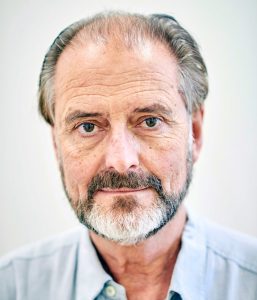 he was a member of the National Youth Theatre before studying Drama at Hull University. On graduating he worked in a number of Britain’s most distinguished regional theatres including the Bristol Old Vic and has specialised in Shakespeare. Indeed it was when he was appearing as Shylock that he wrote his first one-man show. And it’s how to write, perform and manage a one person show that he’s teaching to the students on the Year Long London Theatre Program.
he was a member of the National Youth Theatre before studying Drama at Hull University. On graduating he worked in a number of Britain’s most distinguished regional theatres including the Bristol Old Vic and has specialised in Shakespeare. Indeed it was when he was appearing as Shylock that he wrote his first one-man show. And it’s how to write, perform and manage a one person show that he’s teaching to the students on the Year Long London Theatre Program.
Gareth Armstrong: “I was in The Merchant of Venice, playing Shylock at Salisbury Playhouse and the director Jonathan Church… said what are you doing next? I wasn’t really sure and so I said I’d thought about doing a one-man show and he said what about and I said well I’ve just been playing Shylock, what about Shylock? And he said, “Well I’ve got a date in the studio, September 9th… there are you you’ve got a booking.” I mean there’s no arguing with that so I had to do it. I had to write it, I had to find a director and the process was fascinating,”
Christopher Cook: The show was a huge success and you wrote about your time doing it and then you decided that you’d share the lessons that you learnt in ‘So You Want To Do A Solo Show‘
 GA: “I pitched it to a publisher called Nick Hern, who does a series of books called So You Want To ….. There was nothing like it published in England, but there were several American ones which I’d got from Amazon but they were quite different, they were very much about people ‘finding themselves’ through sole performing. They were very introspective and I was instructed that mine had to be the bones and the flesh and the skin and the blood of putting on a one man show so it had to deal with everything from the initial idea, right through to taking bookings, health and safety, the whole gamut of what you might encounter as a professional putting on a solo show.”
GA: “I pitched it to a publisher called Nick Hern, who does a series of books called So You Want To ….. There was nothing like it published in England, but there were several American ones which I’d got from Amazon but they were quite different, they were very much about people ‘finding themselves’ through sole performing. They were very introspective and I was instructed that mine had to be the bones and the flesh and the skin and the blood of putting on a one man show so it had to deal with everything from the initial idea, right through to taking bookings, health and safety, the whole gamut of what you might encounter as a professional putting on a solo show.”
CC If you think of the phrase, one-man, one-person, one-woman show, it’s a relatively simple one. But then you realise it’s an extraordinary umbrella under which all sorts of things have sheltered son what did you decide what a one-person show was?
GA: “This is an enormous umbrella as you say, so I drew on my own experience and the other one-person shows I’d seen. I looked at what had inspired them and I interviewed performers for the book. I divided it into the different types of solo pieces you can do, then analysed each of them, did a case study as it were – Miriam Margolyes doing Dicken’s Women, as an example and then someone else who did a solo show for children and a nice lady who did one about ladies knickers, all with different target audiences. Then there was the practical side about it. Do you want to have one-man show for the rest of your life? Do you want to do it just to prove you can do it?
CC: One essential thing that emerges is that the good show has to begin with a degree of personal enthusiasm.
GA: “Passion, is what it needs, passion. I had a wonderful director when I was at Olivier’s National and he did a one-man show for twenty years about the actor Macready which you wouldn’t have thought was a very popular subject, I mean who the hell is William Charles Macready? But it was hugely successful, touring around the world several times. When I was talking to him about it he said, well whatever subject you pick on, make sure you’re passionate about it otherwise you’re just going to get bored.
CC: “Coming back to the book, did this follow a pattern you had planned at the beginning?
GA: Well the first draft came back tarred and feathered from Nick Hern! And it was quite hurtful because he’d said. “You know, there’s a lot of actor chat here but what about the nitty gritty?” And first of all, I thought, “Well I won’t bother, I’ll let someone else do it.” And then I thought, “No, no, you’ve got to take this on and I’m not going to give up my actor’s voice. So, I wrote back to Nick “You know more about the theatre than me, than I’ve ever known, and you’re a wonderful publisher but you’re not an actor, you don’t know how actor’s like to be spoken to, so those things you think are irrelevant, actually are vital to an actor. And sometimes they seem foolish or petty but to an actor, that’s an important thing to keep in mind.” So we reached a compromise and I did my research on all the things I didn’t know about – the venues, health and safety, all those things I’d sort of taken for granted as I’d toured but that a lot of people couldn’t take for granted.”
CC: “You clearly must have felt that actors are not taught, basically, bits of everyday business they need to make their lives work.”
GA: “My generation of actors, rather thought that was somebody else’s business, let them get on with that, I’m just an artist, you know, but more and more you can’t do that. You have to get down and dirty and I think actually younger actors appreciate that much more, they’re more entrepreneurial than we were. They don’t just sit and wait for the phone to ring. they get on with it, which is what one admires about them.”
CC: “I suspect that the most difficult thing in a book like this, is finding the right voice and tone. How easy was it to find the tone that for me marks out this book “the friend at your shoulder”?
GA: “I’ve spent my entire working life with actors and as you say we don’t want to patronised, we don’t want to be bullied, we don’t want to be taken for granted so finding that was quite important for me. The actors who read the book who I know, have appreciated that you’re not teaching your granny to suck eggs. On the other hand, why would I need to know about how to hire a van and what cubic capacity it should be and to remember to fill it up with petrol before leaving and make sure I’ve got the GPS? Then making sure that I strike a good relationship with the stage management and the man who’s going to twiddle the knobs … It’s terribly important you don’t make enemies on the way, so you learn diplomacy. There, that’s another skill you have to learn as a solo performer.”
January 2018 Newsletter
In this issue of the BADA Newsletter: an interview with alumna Gerit Quealy (MIO ’94), about her new book Botanical Shakespeare; an interview with new BADA Faculty member Gareth Armstrong about solo performance; a Farewell to long-time BADA Masterclass instructor John Barton; and Remembering BADA Governor Honorable Justice Anthony Colman.
An Evening with Tarell Alvin McCraney (MIO ’05)
American Friends of BADA President, Lydia Carlston (MIO ’01) hosted a fundraising evening at her home featuring BADA alumnus and Academy Award winner Tarell Alvin McCraney in conversation with BADA’s former Dean & Director Ian Wooldridge. Tarell shared stories about his life and childhood, his experience at BADA, and his work.
Asking Alumni … Rob Adler (MIO ’94)
Christopher Cook in conversation with Robert Adler who joined the Midsummer in Oxford Program in 1994.
“It was a transformational experience for my life as an actor and for my life as a person, as a human being in the world. I was young and I was a younger person surrounded by people who were mostly older than I and so that was a big part of the personal transformation. But professionally and personally, the teachers at BADA both challenged me and inspired me to continue, to really begin my life’s work and I am eternally grateful to Fiona Shaw and to Mick Barnfather who both made an imprint on me about what it meant to be an actor alive in the world, curious, making contact, seeking both creativity and interpretation of text with passion and play. In a sense that led me to continue to study, both at university and at conservatory and to the work that I choose to do as an artist and ultimately it’s at the core of what I teach now to actors that I work with, even in film and television. “
for my life as a person, as a human being in the world. I was young and I was a younger person surrounded by people who were mostly older than I and so that was a big part of the personal transformation. But professionally and personally, the teachers at BADA both challenged me and inspired me to continue, to really begin my life’s work and I am eternally grateful to Fiona Shaw and to Mick Barnfather who both made an imprint on me about what it meant to be an actor alive in the world, curious, making contact, seeking both creativity and interpretation of text with passion and play. In a sense that led me to continue to study, both at university and at conservatory and to the work that I choose to do as an artist and ultimately it’s at the core of what I teach now to actors that I work with, even in film and television. “
So where’s your career now?
“I work primarily as a private acting coach to celebrities who are working in film and television in Hollywood, although, some on Broadway as well. I run a small private acting studio in Hollywood where I train actors who are transitioning in their careers from stage to screen, people who are at the early stages of their career who have worked in New York or London and have just come to Los Angeles. There are individuals too who have just finished their conservatory programmes and who are just beginning their career in Hollywood. And up until the end of next month I remain on the faculty at USC, but I’m joining the faculty at the Theatre School at DePaul University, in Chicago.

Are you going to continue running the studio?
“My studio is thriving in Los Angeles and when I work as a private coach, that brings me often a lot of times in Los Angeles but a lot of times it’s on location all around the world. I also do a large amount of private coaching via the Internet, via Skype and Facetime. I also teach master classes. In the last year along I’ve been in Shanghai, in Japan, at Film festivals in the Bahamas and all over the United States so I actually love to travel. It’s one of the perks of my life that my work takes me to meet new people and visit new places. And you know believe it or not I am also still acting and directing. I have a short film that I produced which is in the festival circuit right now. It’s called American Pastime.
“I was in two plays last year as an actor. One was an interesting premiere with a Theatre Company called Theatre Dybbuk which they described as the world premiere of an ancient play, called Exagoge, which is considered to be the first ever Jewish Play.”
“It’s written in the form of a Greek Tragedy, but it’s the story of the Exodus. Only fragments of the play exist and so the company sort of filled in the gaps and created a whole play out of it. I played Moses and Jethro and it was a pretty amazing experience as we played all over Los Angeles in incredible venues including Grand Park, where of course the backdrop is City Hall. Just last month, the company and the production were awarded a proclamation by the city for ‘social consciousness.’ That was a pretty exciting part of my acting career in the last year.”
You hinted that when you came to Oxford you were not absolutely convinced that you wanted to be an actor.
“I think it was more was I knew that I wanted to be an actor but I don’t think I knew what being an actor was! You know I’d had that incredible experience of stepping on the stage or working in the theatre once or twice as a young man, but what I was exposed to at BADA were people who had made it their lives and made a success of it; and to see them, I was exposed to a vision of myself in the future, what a life as an actor might actually be like and so I think that’s what it was. In a day to day way through my teachers at BADA, that vision started to take more shape.”
“You know vision is a weird thing. It maybe just starts with a feeling or an impulse and as you explore, it begins to emerge a bit more clearly and I think BADA was a really important, vital step for me to start to see what the creative work of an actor meant. For example until I worked with Mick Barnfather and Simon McBurney, who did a Masterclass when I was there, I’d never seen devised theatre. Then to work on Shakespeare in the quad at Balliol during tutorials with teachers like Ian Wooldridge was an incredible experience too. It was revelatory to understand how I related to a playwright from 500 years ago, as though he was present with us now. It was incredibly enriching.”
One of the things BADA believes is that both faculty and students past and present belong to a kind of extended family that stretches right across the Atlantic I wonder if you have that feeling too?
“There’s no doubt about it. I mean, here we are more than 20 years later having this conversation because I feel this incredible connection. It’s family-like for sure. My sense of connection to BADA has never waned. I went across the sea and I felt cared for and I felt at home in the programme and by the people there, the people and the structure there frankly and I’ve been very confident and happy to send my college students to BADA and it is a deep, personal and lasting connection that I’m super happy about.”
August 2017 Newsletter
In this issue of the BADA Newsletter: Faculty member Eunice Roberts appointed Dean of BADA; Norman Ayrton – Requiescat in pace; “An Accountant’s life for me” – an interview with Managing Director Tim Denham; a conversation with alum Rob Adler (MIO ’94).
Eunice Roberts appointed Dean of BADA
BADA is pleased to announce that the Governors have appointed Eunice Roberts to be sole Dean of BADA from 1st September 2017.

In her 10 months as Joint Dean, Eunice has impressed all she has met and has demonstrated that she has a widerange of skills, a host of contacts and many ideas for the future. There is no doubt that she will continue to make an enormous contribution to BADA.
Simultaneously, Christopher Cook will become Associate Dean until December 2017. Thereafter he will act in an advisory role which we very much hope will continue well into the future.
Norman Ayrton – Requiescat in pace
“It is with deep sorrow that we record the death of Norman Ayrton peacefully in his sleep at the age of 92. Christopher Cook, who recorded an oral history with Norman, was a colleague for over fifteen years.”
No Norman Ayrton, no BADA. It’s as simple as that. As the Academy’s first Dean it was Norman who created the London Theatre Program syllabus that broadly speaking we still follow. It was Norman who insisted that along with Movement and Voice and Acting Shakespeare there had to be Theatre History and Dramatic Criticism. And, of course, acting for High Comedy which he himself delighted in teaching.
It was a source of infinite pleasure to him when a student finally mastered a scene from The Beaux Strategem or his most favourite play Congreve’s The Way of the World. And mastery included the props, which were as much the character as the lines. A cane was never just a cane when Norman was directing and a fan for much more than for keeping cool.
Norman’s standards were exacting and had been moulded by his time at the Old Vic School after the Second World War. A reluctant actor, you sensed, he had found his metier as a teacher, whether it was the great soprano Joan Sutherland who became a friend, or students at LAMDA, Juilliard, The Royal Academy of Music or at BADA in the final chapter of his professional life.
He loved his students, the ‘kids’ as he called them. Or most of them, and in return they admired and respected him. For his faculty colleagues he will be an irreplaceable presence in the office common room where he offered wise advice and presided over the gossip. And, let it be said, raided the chocolate biscuit tin. I hope that where he’s gone to is a place that welcomes the sweet toothed. And understands the art of holding a fan!
Read The Stage‘s obituary of Norman here.
Faculty Interview: Paul O’Mahony
Eunice Roberts, Joint Dean of BADA talks to BADA’s newest Shakespeare Teacher, Paul O’Mahony about his career so far, the Advanced Shakespeare class he’s teaching at BADA and the key to devising your own production.
Eunice Roberts: Hi Paul. We’re delighted to have you teaching Shakespeare for the Advanced London Theatre Program this semester. In the past, it’s been an eight week course and then the students have gone on to do the productions mixed in together with the new semester long students. However, this year, we’re having your good self, leading the class for the eight weeks and then guiding them into their own production Inspired by Shakespeare.
You regularly create your own productions with your theatre company Out of Chaos. Could you just tell us a little bit about that work, such as Unmythable?
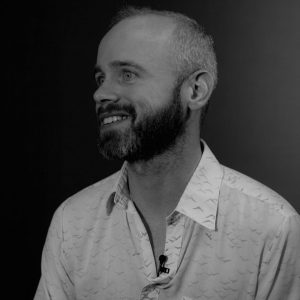 Paul O’Mahony: Absolutely! Our very first show was called Out of Chaos, which we toured to various festivals around Europe. We have another show called Norsesome, which is a retelling of Viking legend and then a production which tells all the Greek Myths in one hour, called Unmythable. Unmythable has toured to around one hundred different theatres in the UK, around Europe and we’ve also been to New Zealand and Edinburgh where we won the Three Weeks Editor’s Award in 2012. Our approach to theatre is based on creating a strong ensemble and lots of game playing: in each scene you’re really trying to find the game that is going on and that makes each scene lively and engaging.
Paul O’Mahony: Absolutely! Our very first show was called Out of Chaos, which we toured to various festivals around Europe. We have another show called Norsesome, which is a retelling of Viking legend and then a production which tells all the Greek Myths in one hour, called Unmythable. Unmythable has toured to around one hundred different theatres in the UK, around Europe and we’ve also been to New Zealand and Edinburgh where we won the Three Weeks Editor’s Award in 2012. Our approach to theatre is based on creating a strong ensemble and lots of game playing: in each scene you’re really trying to find the game that is going on and that makes each scene lively and engaging.
That’s really what I want to spend a lot of these eight weeks doing with the students: exploring Shakespeare, exploring the text and being really rigorous with that and at the same time creating an ensemble that will be ready to go when they come back from their mid-term break. I hope to help them create a strong ensemble that is sensitive to each other’s needs, and can work collaboratively both leading and listening as required, that can then generate its own work. Having explored different plays, we discover that there are huge themes which are enduringly relevant and I’m interested to find out what the students find most interesting and most engaging. Whatever they think is most important for them and for the world that they live in will then inform what we do for the production. Whatever themes or situations excite them, there will be a Shakespeare play that will serve as a wonderful inspiration.
ER: We first met through Actors From The London Stage, a theatre company of five actors, no director, no stage manager, no one except support from an office and a plan of where the show will tour within American colleges and universities. With only five people it means that in doing a whole play you always portray many characters and so there’s also that aspect to consider when devising your own piece. Can you tell us a little bit about how you will begin devising this new piece of work with the students?
PO’M: Throughout the eight weeks we’ll gradually be doing bits of devising as well as exploring the text and then for the production period we’re going to be using a Shakespeare play as the inspiration for a whole new play, possibly having a play within a play, like in Hamlet or A Midsummer Night’s Dream.
Some of the devising we’ll be doing as a group will be inspired by the work that I do with Actors From The London Stage, for example, this last week we have been exploring Richard III and I’ve asked them to choose three different characters, ensuring that there is one of each gender and different age ranges between them, etc. and then this week we’ll be exploring switching between these different characters and playing scenes and trying to solve the problems that occur when there aren’t enough of them for all the parts.

ER: So in their production there will be lots of physical changing, but what about use of language? Could you tell us a little bit about your thoughts on Shakespeare’s language, how it should be used?
PO’M: There are clues within the text and in choosing three characters they will begin to really find how many different clues there are. I’ve also been asking them to choose lines that jump out as saying something particular about one of their characters. They then begin exploring why that line is interesting. What it is within that language, the structure, the vocabulary used that make it interesting, and how we can then use that to inform the character in terms of vocal quality? This is very useful when playing multiple roles. We also use it to inform the characters’ physicality, to start creating a silhouette…
ER: That is something I often talk about with new actors joining the company. I ask them to imagine drawing a heavy pencil line all the way around the character’s body and then when you step out of that you leave an impression of that character behind on the stage, so in stepping in and out of characters they don’t disappear, their silhouette remains.
PO’M: Over the weekend I’ve asked them to look at parts of the Richard and Anne Scene from early on in Richard III, and what we’ll be exploring with that is the dynamic of a scene and how Richard and Anne are picking up on each other’s language. Last week we looked briefly at the line endings in that scene and how they are twisted echoes of each other’s words which they use to jab back at the other character. This must then inform the playing of that scene and the playing of these characters. These characters who are sparring incredibly effectively, who are listening incredibly intently because they’re picking up precisely on what the other is saying before then throwing it straight back at them, demonstrating they are intellectually a match for one another. All of this is there within the language and I’m a firm believer that this then informs us about the rhythm of the action, how we create that rhythm and then when we choose to break that rhythm. There’s no setway in which everything should be done otherwise we wouldn’t keep exploring.
ER: No, and it goes through the individual, so naturally the individuality of the rhythm of that individual actor comes out.
PO’M: That’s it. It’s giving the students the tools and awareness of that rhythm, so that they can then make the choices as to when they break it and then make those moments which an audience will pick up on imperceptibly.
ER: So at this stage you’re waiting to see what the class brings as well to inform what the final production will be.
PO’M: Yes, ultimately I am hoping it will be led by the students and I facilitate that happening, so that they create the show that they want to create. I’m there to help guide them through the process of making their own work.
ER: I think before we finish up we should mention that we worked together, about six years ago at the Orange Tree Theatre, in Richmond in a play called Mary Broomein which you were my son.
PO’M: That is absolutely true! It was just after I came back from my first ever Actors From The London Stage tour, so we met just before Mary Broome. I was exceedingly honored to be your son. I’ve done quite a few shows in the Orange Tree Theatre. The space is in the round and you’re extremely close to the audience so there’s this lovely sense of everyone being part of something together, which I really enjoy. I’m constantly saying to my students here at BADA that there will always be another character/performer in the room with you – the audience and that’s who you have to keep playing with.
Thank you Paul. We look forward to seeing the wonderful production the Advanced Shakespeare Class produces with you later this term.
March 2017 Newsletter
In this issue of the BADA Newsletter: an interview with new Shakespeare instructor Paul O’Mahony about the Year Long London Theatre Program; introducing BADA’s new Brand and Website; Photos from the new LTP Acting for Film & Screen course!
Midsummer in Oxford Alum Tarell Alvin McCraney wins an Oscar!
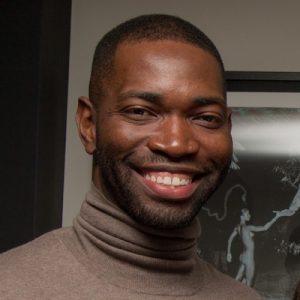
Congratulations to Tarell Alvin McCraney (MIO ’05) who won for Best Adapted Screenplay for Moonlight, which was based on his play In Moonlight Black Boys Look Blue.
BADA Newsletter Archive
For editions of the BADA newsletter from 2014 – 2016, please visit the BADA Press Room Archive or click the links below:
BADA Newsletter November 2016
![]()
BADA Newsletter June 2016
![]()
BADA Newsletter February 2016
![]()
BADA Newsletter September 2015
![]()
BADA Newsletter May 2015
![]()
BADA Newsletter January 2015
![]()
BADA Newsletter October 2014
![]()
BADA Newsletter May 2014
Alan Rickman: actor, master teacher, dear friend
The BADA family is deeply saddened by the death of Alan Rickman, a long-time friend and frequent Masterclass instructor.

